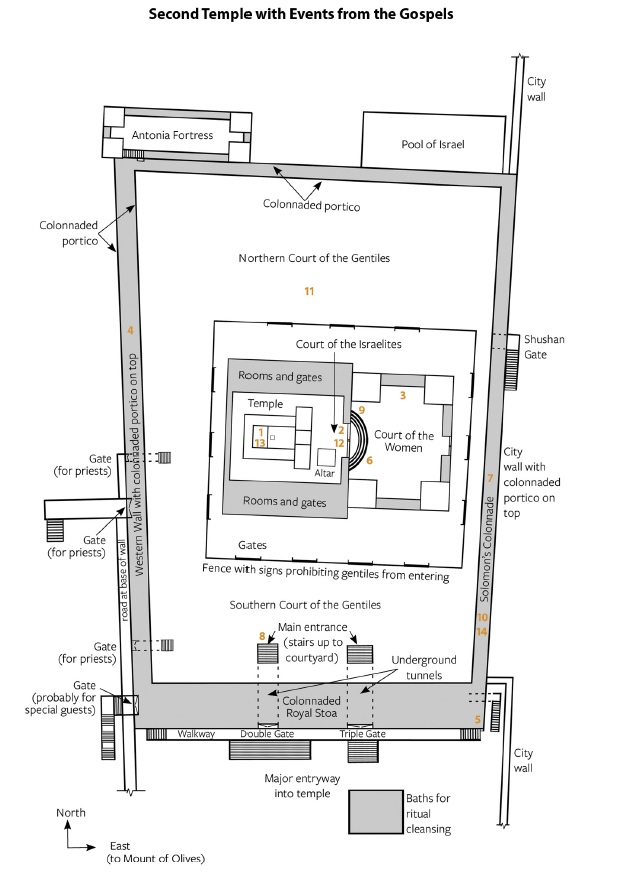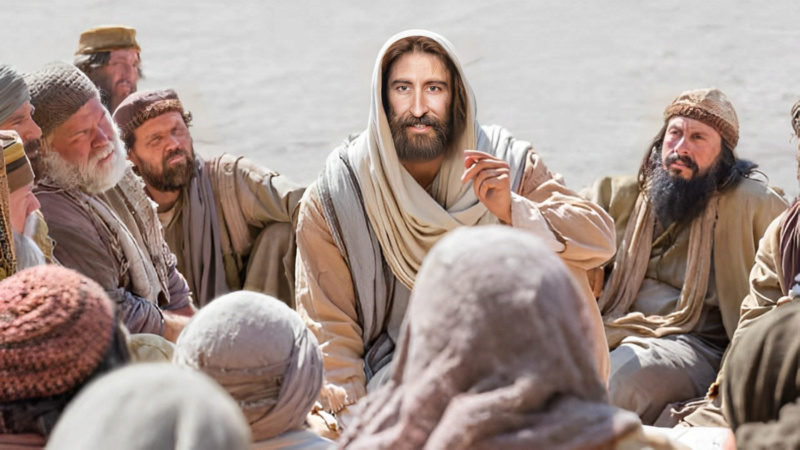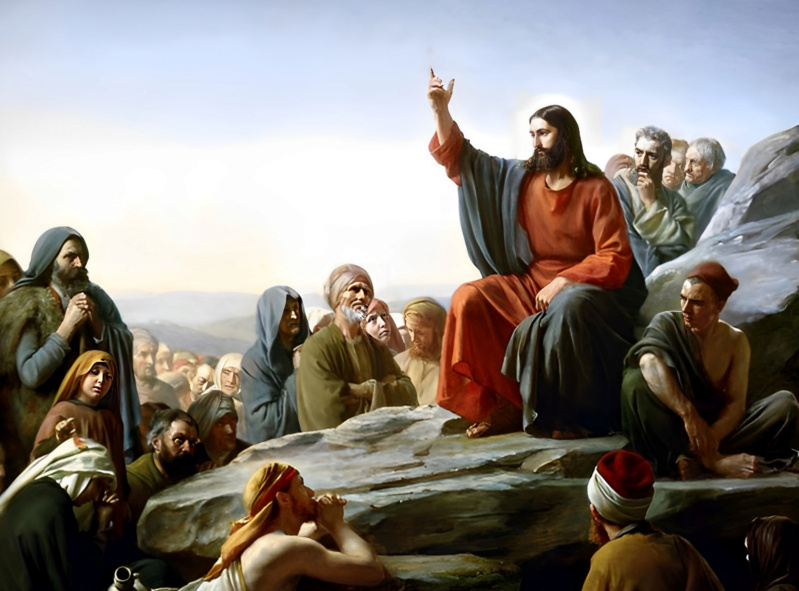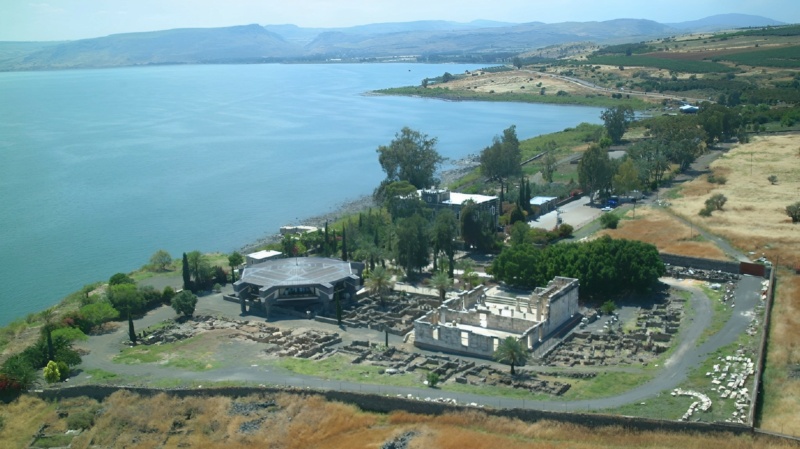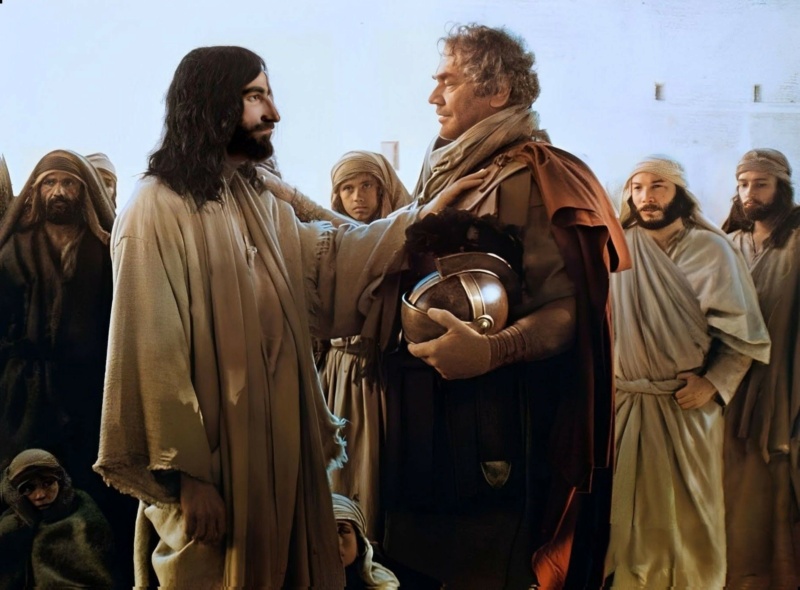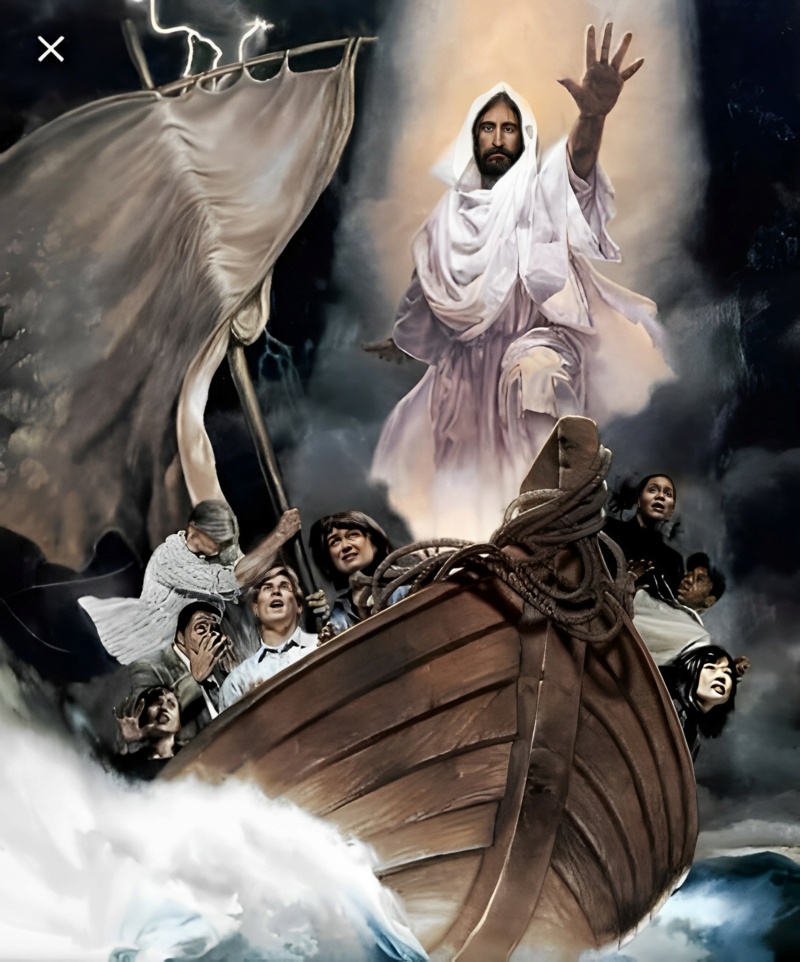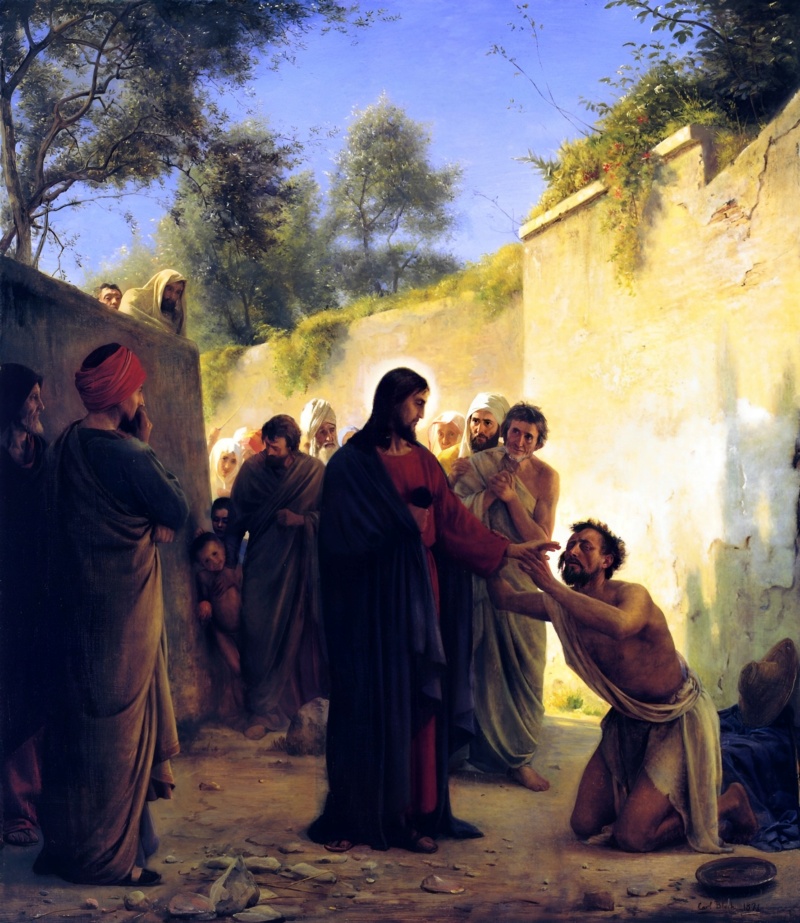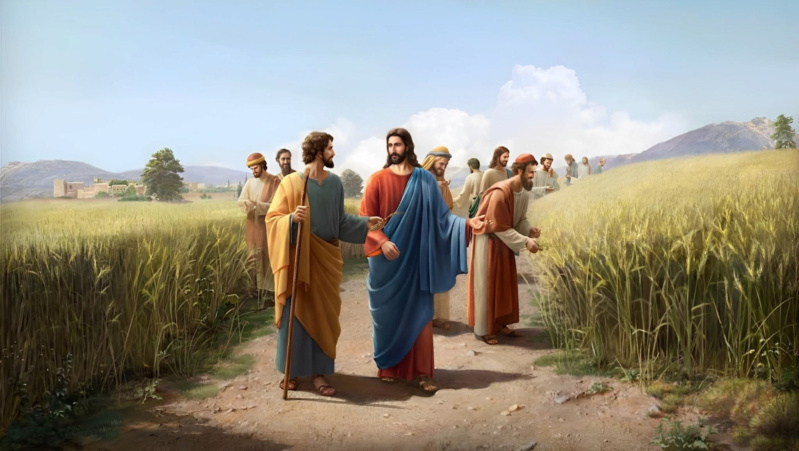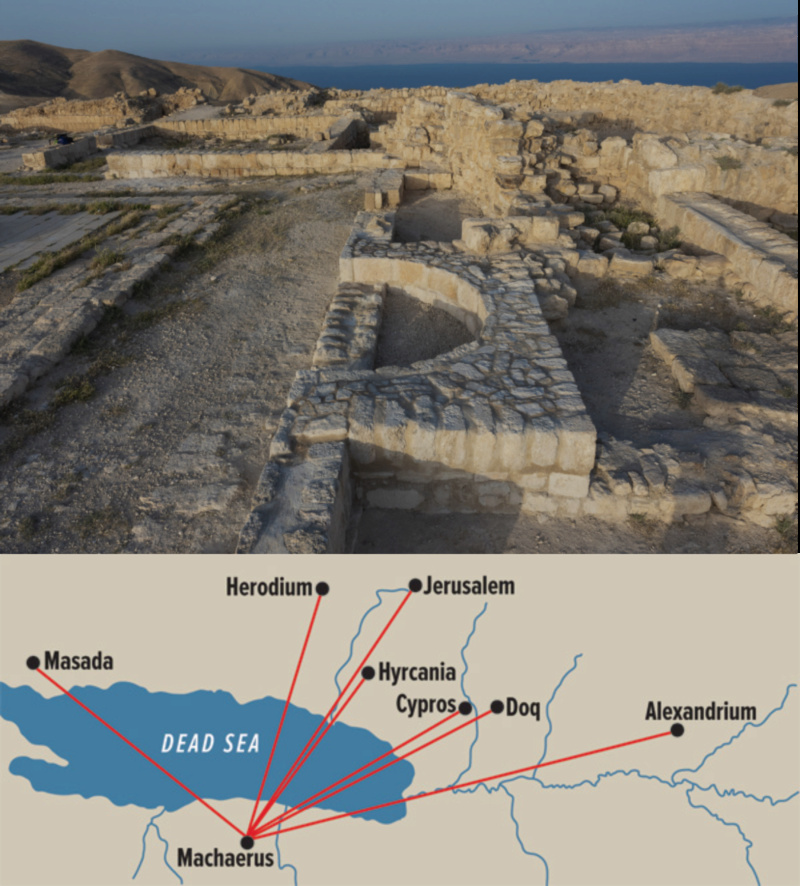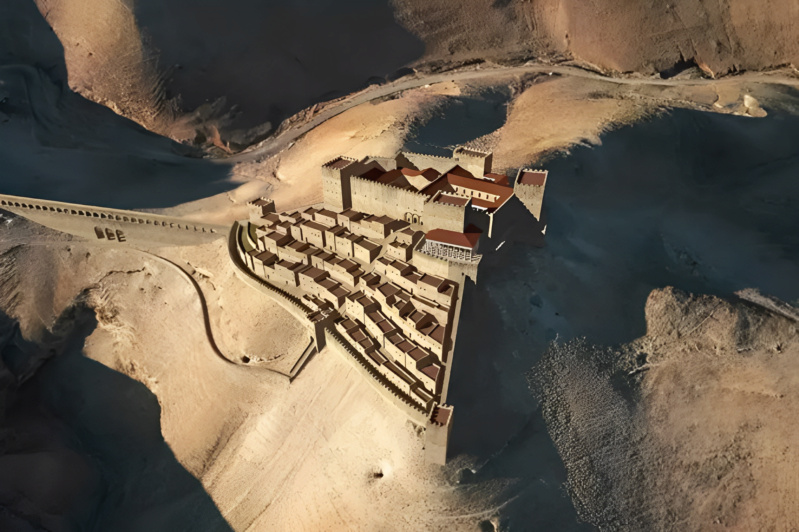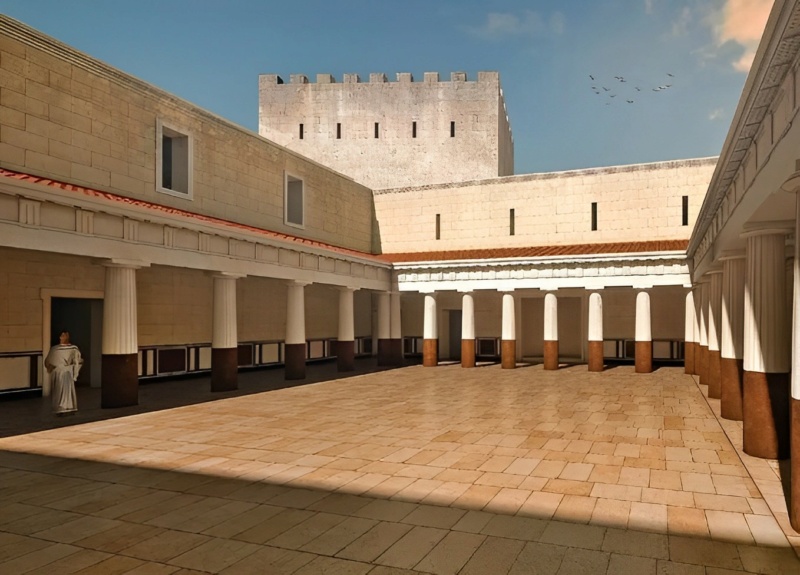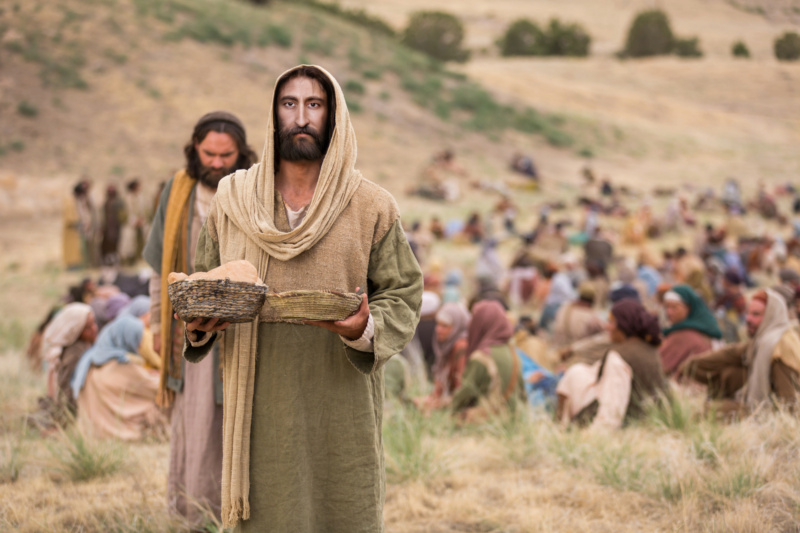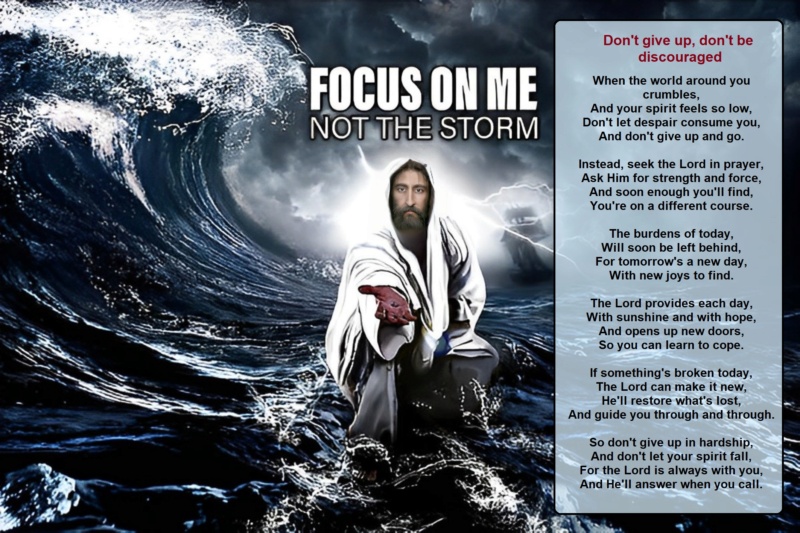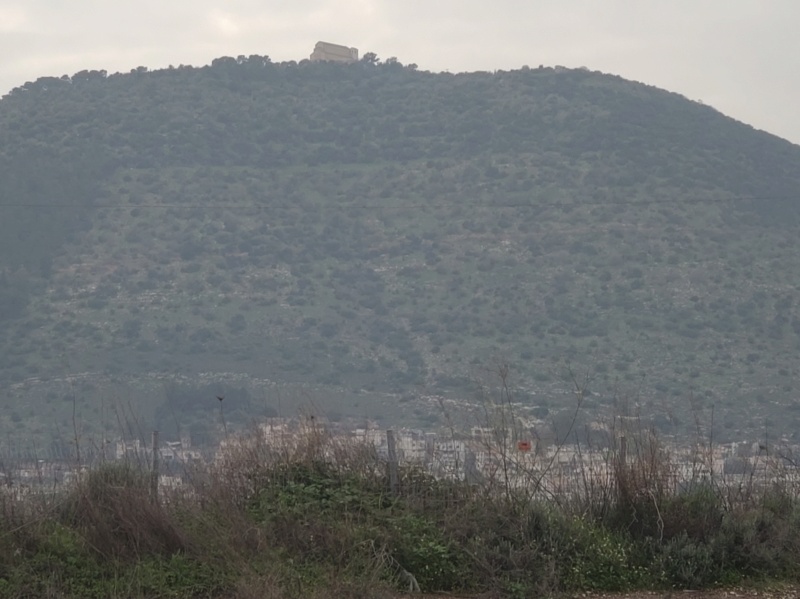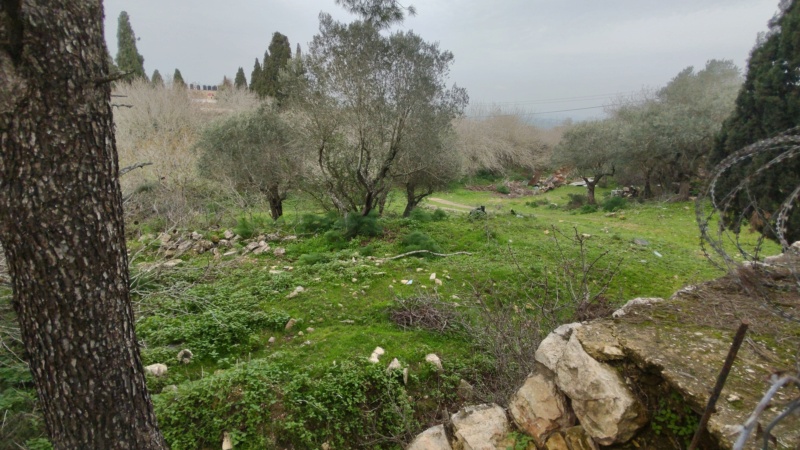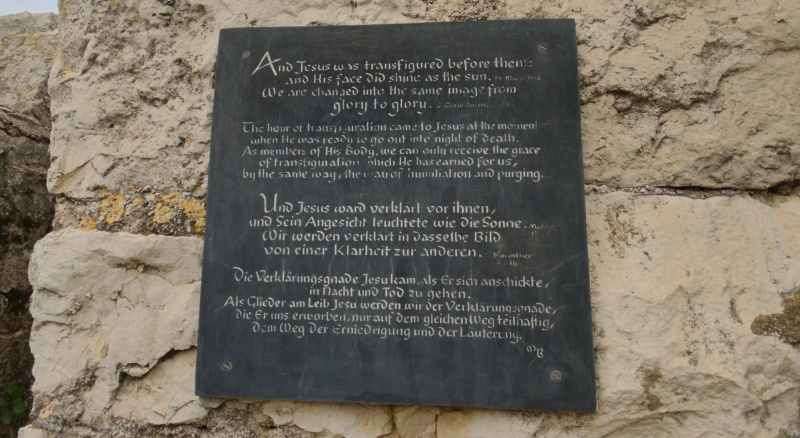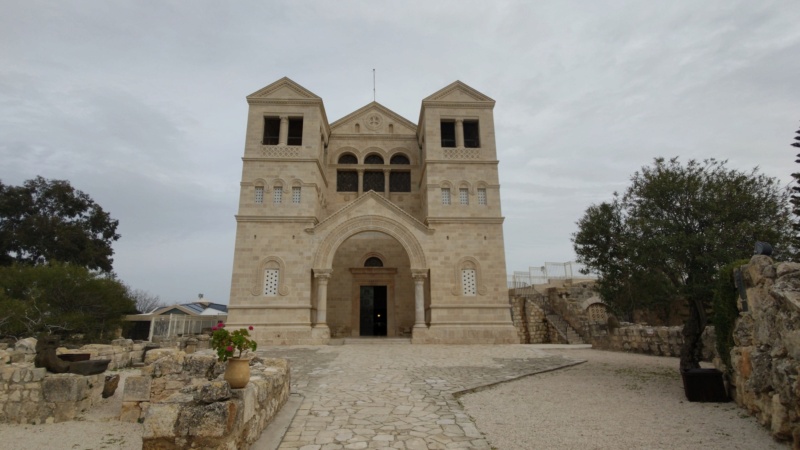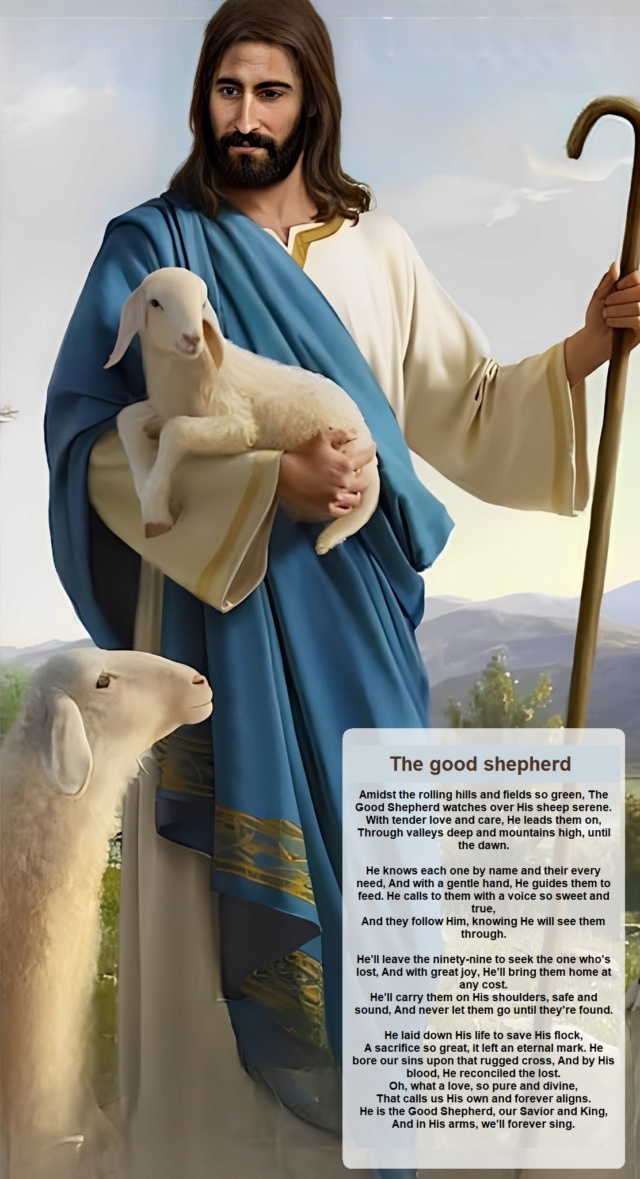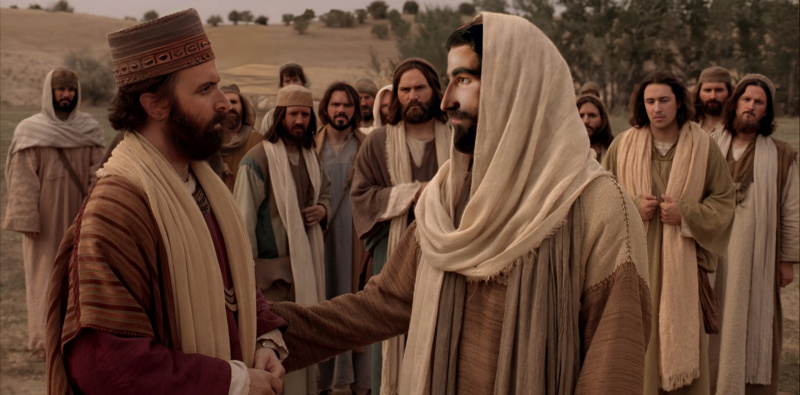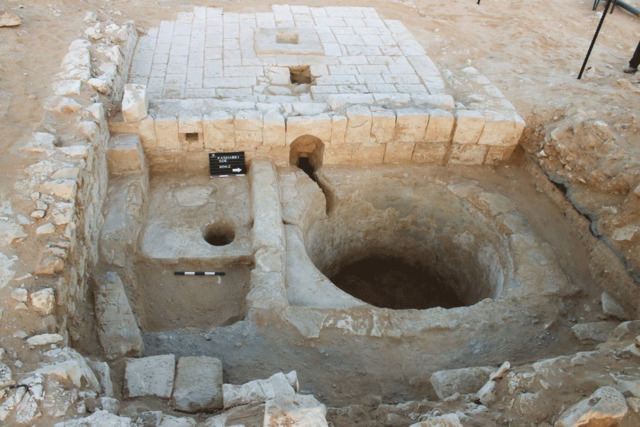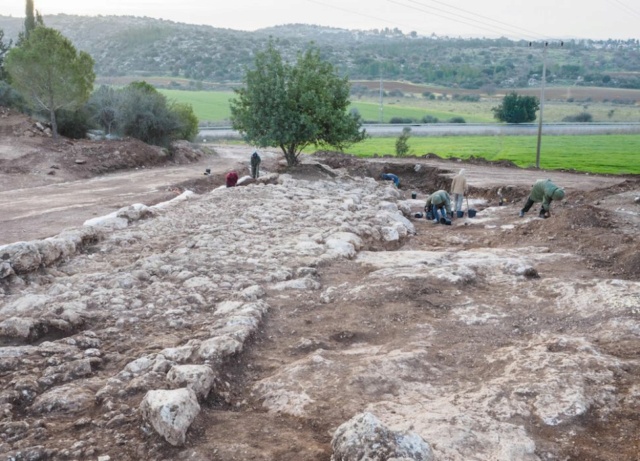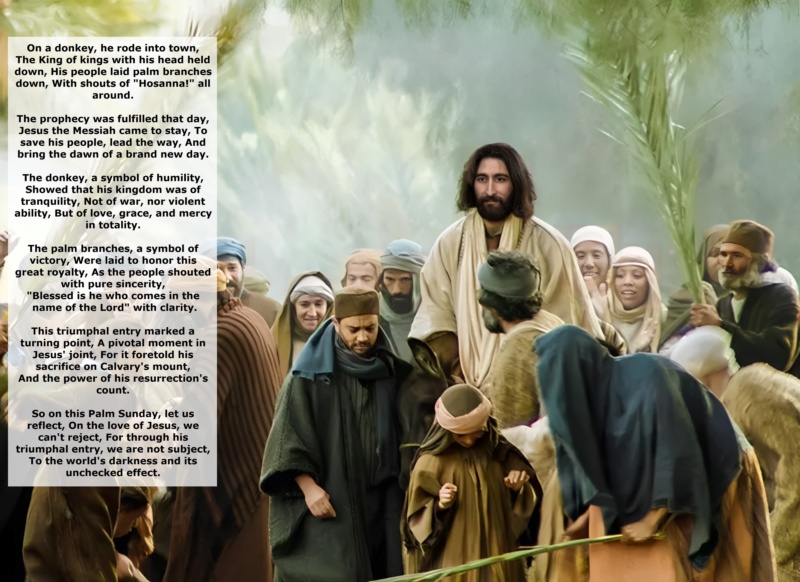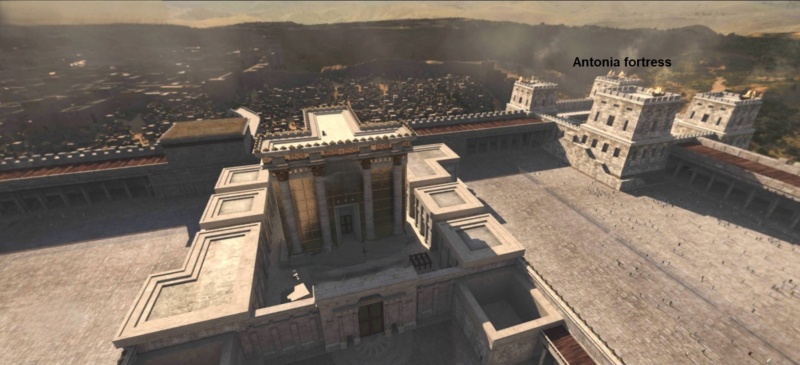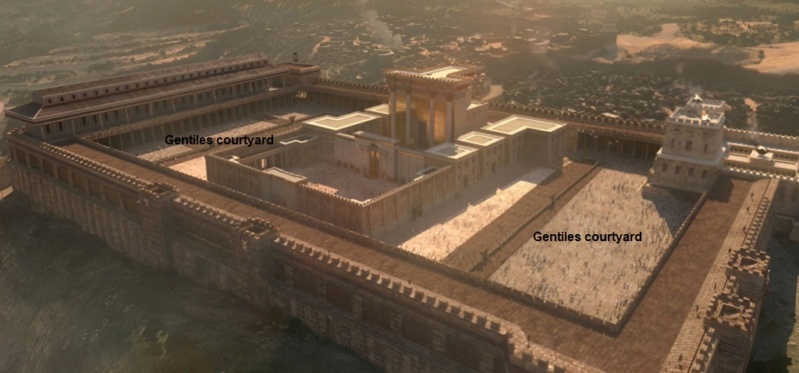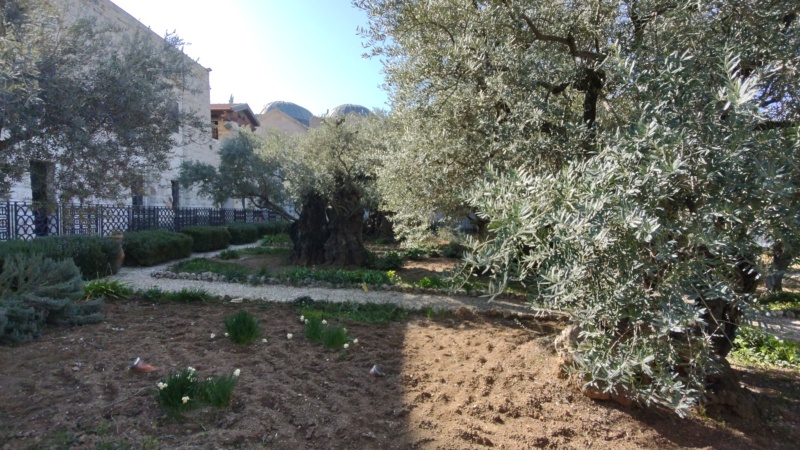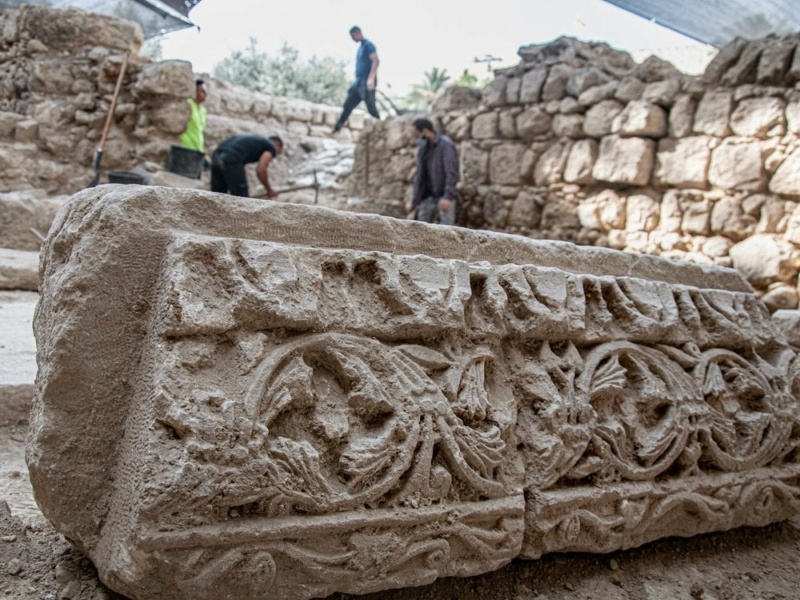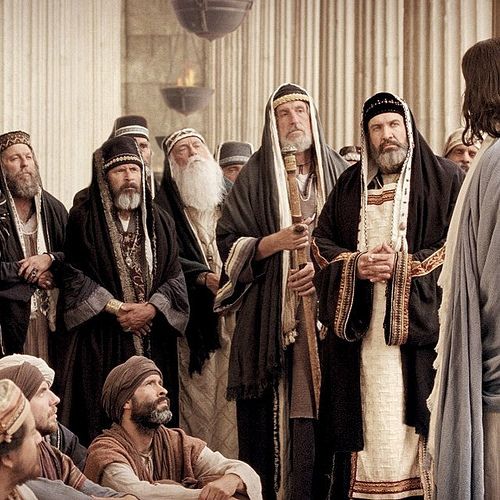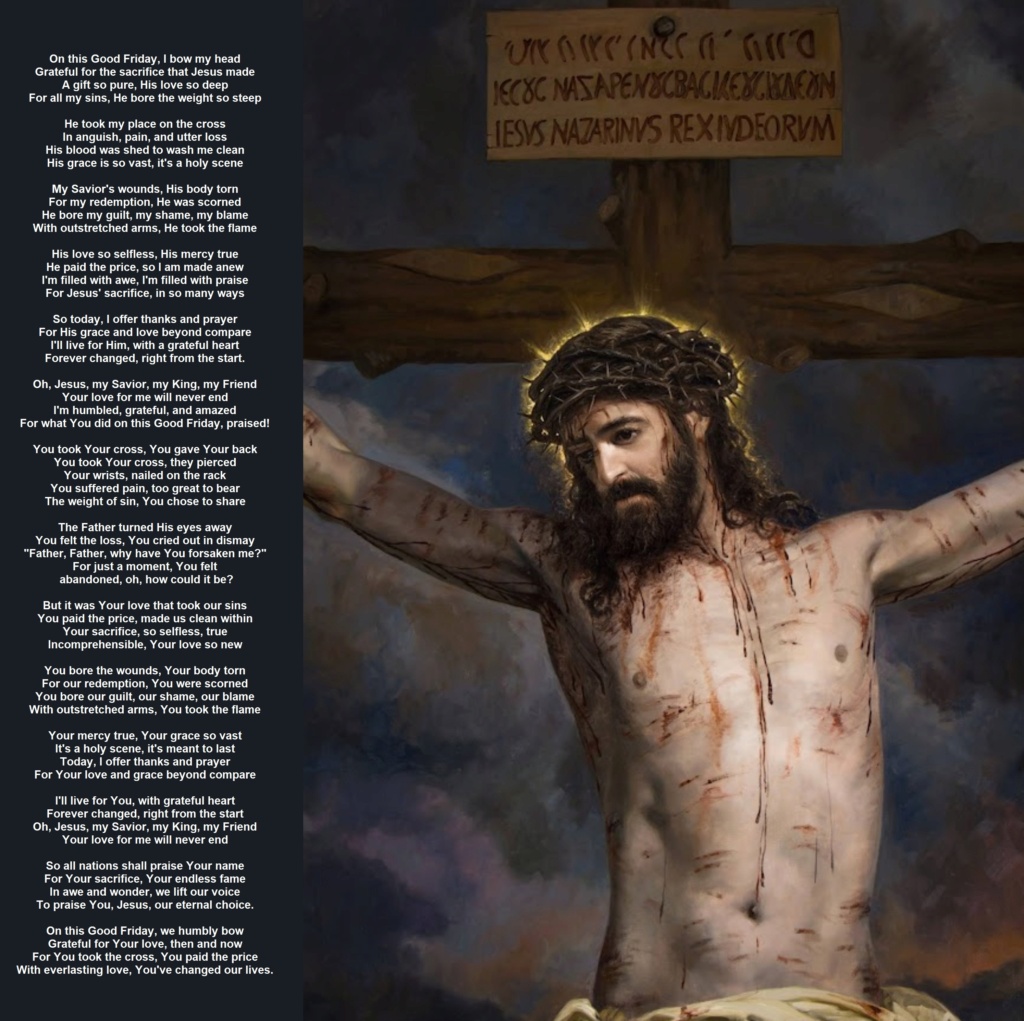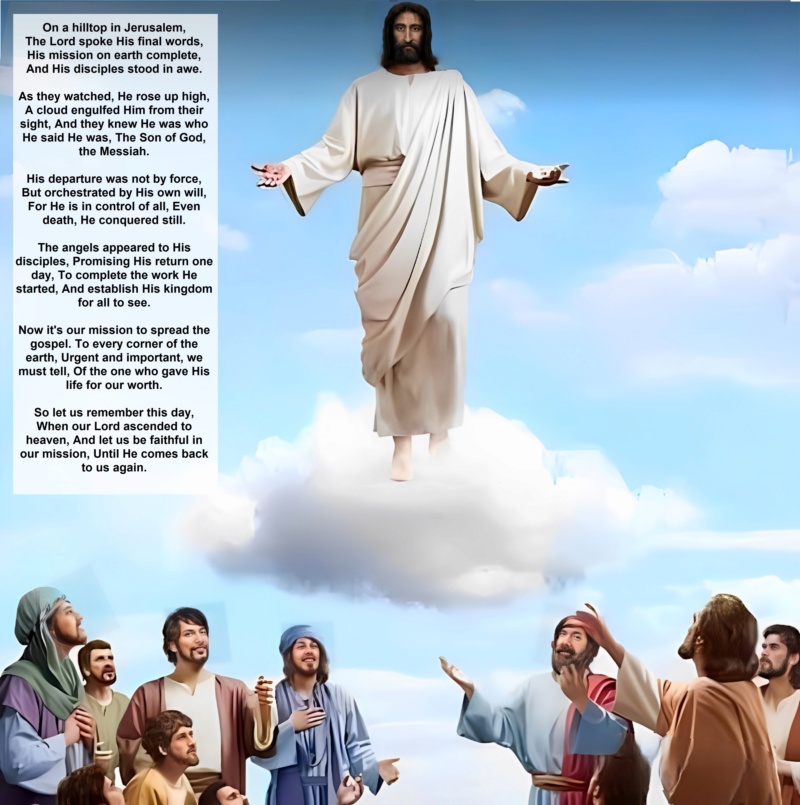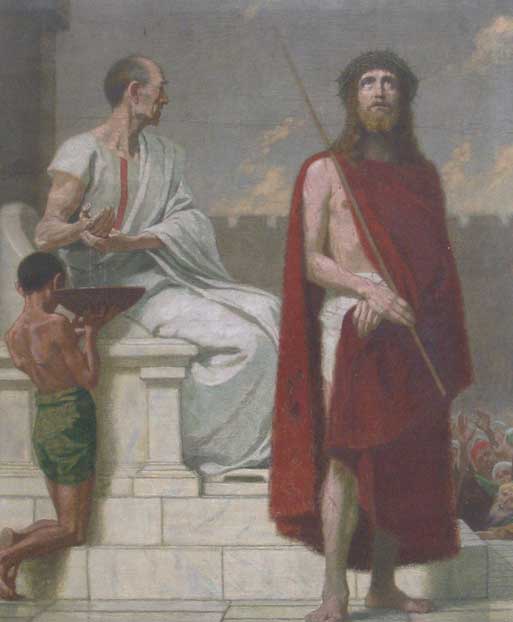Introduction:
"Divine Verses: A Poetic Retelling and Exploration of the Gospel of Matthew" offers readers a unique and artistic approach to engaging with the biblical text of the Gospel of Matthew. Through the medium of poetry, this book invites readers to experience the timeless story of Jesus Christ in a fresh and captivating way. With rich imagery, lyrical language, and deep reflection, "Divine Verses" illuminates the life, teachings, and significance of Jesus as presented in Matthew's gospel.
Overview
This poetic commentary book delves into the Gospel of Matthew, using the power of poetry to retell and explore its stories, parables, and teachings. The verses bring to life the historical and cultural context of Matthew, evoking the sights, sounds, and emotions of Jesus' ministry. Through poetic language, "Divine Verses" offers a new perspective on the profound truths and messages contained in Matthew's gospel.
The book delves into the major themes of Matthew, such as the kingdom of heaven, discipleship, and righteousness, through the lens of poetry. It captures the nuances and complexities of the characters and groups encountered in Matthew's narrative, illuminating their struggles, motivations, and interactions in poignant verses. "Divine Verses" also explores the ways in which Matthew draws on the Old Testament to reveal Jesus as the promised Messiah and the embodiment of God's plan.
Furthermore, this book invites readers to reflect on the spiritual and theological significance of Matthew's gospel through the beauty and power of poetic language. The verses inspire contemplation, meditation, and personal application of the gospel's teachings in everyday life. "Divine Verses" offers a fresh and immersive reading experience, allowing readers to connect with the timeless truths of the Gospel of Matthew in a profound and artistic way.
Matthew, also known as Levi, was one of the twelve apostles of Jesus Christ and is traditionally believed to be the author of the Gospel of Matthew. He was a tax collector by profession before he became a follower of Jesus. In the New Testament, he is referred to as "Matthew" or "Levi" interchangeably. According to Christian tradition, he was chosen by Jesus to be one of his disciples and was also known as one of the apostles. The Gospel of Matthew is attributed to him based on early Christian writings and historical accounts.
Matthew, the first book of the New Testament, is often regarded as a Gospel with a distinctly Jewish focus. It is believed to have been written after the Gospel of Mark, which is considered to be the first Gospel published, and likely composed shortly before or after the destruction of the Jewish temple in AD 70. Although the author of Matthew's Gospel is technically anonymous, early church tradition attributed it to Matthew, and the earliest copies of the Gospel bear the title "According to Matthew."
The Jewish interests of Matthew are evident throughout his Gospel. First, he begins his account with the genealogy of Jesus, tracing his lineage back to Abraham and through David, emphasizing Jesus' royal heritage. This is significant because it establishes Jesus as the rightful heir to the Davidic throne, fulfilling Old Testament prophecies about the coming Messiah. Matthew repeatedly highlights how Jesus fulfilled prophecies pertaining to the Messiah and the messianic age. He portrays Jesus as the fulfillment of God's promises to Israel, showcasing how Jesus' life, teachings, and actions align with the Old Testament prophecies about the coming Messiah. Matthew presents Jesus as the embodiment of all of Israel's heroes, such as Moses, David, Solomon, Elijah, and the prophets. This further reinforces Jesus' connection to Israel's history and identity as God's chosen people. Matthew emphasizes that Jesus came to fulfill the law, not abolish it. He portrays Jesus as the perfect law-keeper who embodies the essence of God's law and teaches its true meaning. This emphasis on the fulfillment of the law aligns with the Jewish understanding of the importance of the Torah in the life of a devout Jew. Matthew portrays Jesus' mission as having two phases. The first phase is to restore Israel, and the second phase is to bring salvation to the rest of the world. Matthew sees Jesus as the promised Messiah who came to rescue and restore Israel from its spiritual and societal decay, and then extend salvation to all nations. This reflects the Jewish belief that the Messiah would come to restore the glory of Israel and bring blessings to all the nations of the world. Salvation is a central theme in Matthew's Gospel, as reflected in Jesus' Hebrew name, Yeshua, which means "Yahweh saves." Matthew presents Jesus as the one who brings salvation to Israel and all nations through his words, deeds, death, and resurrection. He portrays Jesus as the victorious king who vanquishes all of God's enemies, including Satan, demons, evil, suffering, and ultimately death, in order to establish the kingdom of heaven on earth. According to Matthew's Gospel, the story of Jesus is the story of salvation, where God's promises to Israel and all humanity are fulfilled through the life, death, and resurrection of the Messiah. Matthew's Gospel is characterized by its Jewish focus, presenting Jesus as the promised Messiah of Israel for the salvation of the whole world. Matthew emphasizes Jesus' fulfillment of Old Testament prophecies, his embodiment of Israel's heroes, his fulfillment of the law, and his mission to restore Israel and bring salvation to all nations. Salvation is the key to understanding Jesus' ministry in Matthew's Gospel, where he establishes the kingdom of heaven on earth through his words, deeds, death, and resurrection.
Who was Matthew, the author of the Gospel of Matthew?
Matthew, also known as Levi, was one of the twelve apostles of Jesus Christ and is traditionally believed to be the author of the Gospel of Matthew. He was a tax collector by profession before he became a follower of Jesus. In the New Testament, he is referred to as "Matthew" or "Levi" interchangeably. According to Christian tradition, he was chosen by Jesus to be one of his disciples and was also known as one of the apostles.
The early church is unanimous in its acceptance of Matthew as the writer of the First Gospel. Papias, Irenaeus, Pantaenus, and Origen all report Matthew as the writer of the First Gospel. These early church writers all attributed the authorship of the First Gospel to Matthew. Papias, who lived in the early second century AD, wrote that Matthew, the tax collector and one of Jesus' disciples, compiled the sayings of Jesus in the Hebrew language. Irenaeus, who lived in the late second century AD, wrote that Matthew published a written Gospel in the Hebrew language. Pantaenus, who was a Christian missionary to India in the late second century AD, is reported to have found a copy of Matthew's Gospel written in Hebrew in India. And Origen, who lived in the third century AD, also attributed the First Gospel to Matthew. Papias, a bishop of Hierapolis in Asia Minor, wrote in the early 2nd century that "Matthew put together the oracles [of the Lord] in the Hebrew language, and each one interpreted them as best he could."
When and where was the Gospel of Matthew written?
The Gospel of Matthew was likely written in a Greek-speaking community, as it is written in Greek, although the exact location is uncertain. Papias was a Christian bishop and historian who lived in the 2nd century AD. He is known for his work "Exposition of the Sayings of the Lord," which is now lost, but fragments of it have been preserved in the writings of later authors. One of the fragments that has been preserved is a passage that discusses the authorship and language of the Gospel of Matthew. According to Papias, Matthew wrote the gospel "in the Hebrew language," which he then translated into Greek.
Irenaeus was a prominent Christian bishop and theologian who lived in the late 2nd century AD. He was a disciple of Polycarp, who in turn had been a disciple of the apostle John, and he played an important role in defending orthodox Christian teachings against various heresies that were circulating at the time. Like Papias before him, Irenaeus wrote about the authorship of the four gospels and the book of Acts. He affirmed Papias's view that Matthew was the author of the first gospel, and he also attributed the second gospel to Mark, whom he described as Peter's interpreter. Irenaeus believed that Mark wrote down Peter's recollections of Jesus' teachings and deeds, and that he did so accurately and without embellishment. Regarding the third gospel, Irenaeus believed that it was written by Luke, a companion of Paul who had traveled with him on some of his missionary journeys. According to Irenaeus, Luke wrote his gospel based on the teachings and memories of the apostles and other eyewitnesses of Jesus' ministry. Irenaeus also linked the book of Acts with Luke, describing it as a continuation of his gospel and a record of the early history of the Church. Finally, Irenaeus attributed the fourth gospel to John, the Beloved Disciple who had been a close companion of Jesus during his earthly ministry. Irenaeus believed that John wrote his gospel later than the other three, and that he did so to supplement their accounts with additional teachings and insights. Overall, Irenaeus's views on the authorship of the gospels and Acts became widely accepted in the early Church and had a significant influence on subsequent Christian theology and scholarship.
The earliest extant citation of the Gospel of Matthew comes from a work by Ignatius of Antioch, who was a Christian bishop and martyr in the early 2nd century AD. Ignatius wrote a series of letters to various churches while he was being taken to Rome for execution, and in his letter to the church in Smyrna, he quotes from Matthew's gospel. Specifically, he refers to Jesus as "the Son of Mary and the Word of God" and cites Matthew 1:23, which prophesies that the Messiah would be born of a virgin. It is worth noting, however, that Ignatius does not explicitly name Matthew as the author of the gospel he is quoting from, so it is possible that he was drawing on an earlier source or tradition. Nonetheless, his use of material from Matthew's gospel indicates that it was already in circulation and being recognized as a significant text within Christian communities by the early 2nd century. It is generally believed that Ignacius's martyrdom occurred around the year 107 AD. Ignatius was arrested by the Roman authorities for his Christian beliefs and was sent to Rome to be executed. Along the way, he wrote several letters to various churches, which have survived and are still studied today as important early Christian documents. Ignatius is believed to have been thrown to wild beasts in the arena as part of the Roman Empire's policy of punishing Christians who refused to renounce their faith. His letters, which he wrote while he was being transported to Rome, express his deep faith in Jesus Christ and his willingness to die for his beliefs.
What is the purpose and structure of the Gospel of Matthew?
The Gospel of Matthew is written with a clear purpose, which is to present Jesus as the long-awaited Messiah of the Jewish tradition and to emphasize his teachings. Matthew's Gospel also seeks to show Jesus as the fulfillment of Old Testament prophecies. The structure of Matthew's Gospel is characterized by a narrative framework that includes the birth and childhood of Jesus, his teachings, miracles, interactions with others, his death, and his resurrection. It also contains five major discourses of Jesus, including the well-known Sermon on the Mount.
What are the key themes and theological perspectives presented in Matthew's Gospel?
Some of the key themes in the Gospel of Matthew include the fulfillment of Old Testament prophecies, the teachings of Jesus on righteousness and ethical living, the establishment of the Kingdom of God, and the importance of discipleship. The Gospel of Matthew also emphasizes Jesus' identity as the Son of God and the promised Messiah, as well as his role as the authoritative teacher and interpreter of God's will.
What is the historical and cultural context of the Gospel of Matthew?
The Gospel of Matthew was written during a time when the early Christian community was grappling with its identity and relationship with Judaism. It was also written against the backdrop of the Roman Empire, which exerted significant influence on the region where Jesus lived and preached. The Gospel of Matthew reflects the cultural and religious context of first-century Judaism, including its customs, practices, and expectations of the Messiah.
What are the unique features and characteristics of Matthew's Gospel compared to the other Gospels?
Matthew's Gospel has several unique features and characteristics. For example, it contains the genealogy of Jesus tracing his lineage back to Abraham and David, which highlights his Messianic credentials. It also includes more detailed teachings of Jesus, such as the Sermon on the Mount, and a higher frequency of references to the Old Testament scriptures. Additionally, Matthew's Gospel presents Jesus as the "new Moses," who delivers a new law and establishes a new covenant, drawing parallels with the Old Testament narrative.
How does Matthew portray Jesus as the Messiah and fulfiller of Old Testament prophecies?
Matthew's Gospel presents Jesus as the long-awaited Messiah of the Jewish tradition by emphasizing how Jesus' life and ministry fulfill numerous Old Testament prophecies. Matthew frequently cites and references Old Testament scriptures to show that Jesus is the promised Messiah. The genealogy of Jesus, his birth in Bethlehem, and other events in his life are portrayed as fulfilling specific prophecies, highlighting Jesus' Messianic identity.
What are the major events and narratives covered in the Gospel of Matthew?
The Gospel of Matthew covers various major events and narratives in the life of Jesus, including his birth and childhood, his baptism by John the Baptist, his teachings and miracles, his interactions with disciples
Genealogy of Jesus Christ (Matthew 1:1-17)
A lineage of names, a family tree,
Traced back to ancient ancestry.
From Abraham to David's throne,
The generations were surely shown.
Jacob, Judah, Perez and Hezron,
Names of those whose legacy lives on.
Then came Aram, Amminadab,
Nahshon, Salmon, Boaz, their clan.
With Ruth, the Moabite, in their line,
Obed, Jesse, David did shine.
Solomon, the king, was also there,
His son, Rehoboam, in the heir.
As the generations marched along,
Names became more than just a song.
Josiah, Jechoniah, Zerubbabel too,
The list goes on, a long review.
From Babylonian exile, the people came,
To rebuild the temple, to find their fame.
Zerubbabel, Abiud, Eliakim,
Azor, Zadok, and the list goes dim.
Then came Eleazar, Matthan, and Jacob,
Joseph, the husband, with Mary to flock.
The birth of Jesus, the Messiah, foretold,
The generations of old, now new and bold.
From Abraham to David's throne,
The lineage of Christ, forever shown.
A family tree, a legacy of grace,
The Savior of the world, the human race.
Matthew, one of the four Gospel writers in the New Testament, begins his account of Jesus' birth with a genealogy that traces Jesus' lineage all the way back to Abraham, the father of Israel, and through King David. This genealogy serves to establish Jesus' connection to the history and heritage of Israel, highlighting his role as a true son of Israel and a descendant of Israel's greatest king.
Matthew also includes the story of the Magi, who were Gentiles from the East. These Magi were guided by a God-ordained star and came to Israel in search of a God-sent king. When they arrived in Bethlehem, they honored the child Jesus with gifts of gold, frankincense, and myrrh, signifying his royal and divine status. This inclusion of the Magi in Matthew's account serves to show that Jesus was not only the king of Israel but also the Lord of all nations, emphasizing his universal significance.
On the other hand, Luke, another Gospel writer, begins his story with an angel visiting Mary, the mother of Jesus. The angel informs Mary that she will conceive a child by the power of the Holy Spirit, revealing the miraculous nature of Jesus' conception. This event underscores God's divine intervention in the birth of Jesus and fulfills the Old Testament prophecy that a ruler would arise from Bethlehem.
Luke also includes the account of the Roman emperor ordering a census, which required Joseph, Mary's betrothed, to travel to Bethlehem for the registration. This census was part of God's plan to fulfill the prophecy that the Messiah would be born in Bethlehem. However, when Joseph and Mary arrived in Bethlehem, there was no proper room for them, and Mary had to lay her newborn baby in a manger, a feeding trough for animals. This humble and lowly birth setting of Jesus in a manger highlights his identification with the marginalized and the poor, foreshadowing his mission to reach out to those in need.
Luke further includes the story of the shepherds in the fields who received the angelic proclamation of Jesus' birth. The angel announced "good news that will cause great joy for all the people," indicating the universal significance of Jesus' birth. The shepherds were given a sign to recognize the baby Jesus, who would be wrapped in cloths and lying in a manger. More angels appeared, praising God and proclaiming peace on earth for those on whom God's favor rests.
Both Matthew and Luke provide unique details in their accounts of Jesus' birth, emphasizing his connection to Israel's history, his universal significance, and the miraculous nature of his birth through divine intervention. These details serve to highlight the fulfillment of prophecies and the extraordinary nature of Jesus' birth, setting the stage for his role as the promised Messiah and Savior of all people.
The main point of the passage in Matthew 1:1-17 is to establish the genealogy of Jesus Christ, tracing his lineage back through David and Abraham to show that he is the long-awaited Messiah. The passage emphasizes the fulfillment of Old Testament prophecy and highlights the importance of Jesus' earthly lineage in establishing his authority as the Son of God.
Spiritually, this passage can teach us the importance of recognizing Jesus as the fulfillment of God's promises throughout history. It also reminds us that God works through imperfect people and that even those with a checkered past can be used for his purposes.
Practically, this passage can also remind us of the importance of our own family histories and the impact they have on our lives. It can also encourage us to learn from the mistakes of our ancestors and strive to live in a way that honors God and his plan for our lives.
This passage connects to the rest of the Gospel by establishing Jesus' authority and identity as the promised Messiah. It also ties into the overarching theme of salvation history throughout the Bible, highlighting the continuity of God's plan and his faithfulness to his people.
Genealogy of Jesus Christ
1 This is the genealogy[a] of Jesus the Messiah[b] the son of David, the son of Abraham:
2 Abraham was the father of Isaac,
Isaac the father of Jacob,
Jacob the father of Judah and his brothers,
3 Judah the father of Perez and Zerah, whose mother was Tamar,
Perez the father of Hezron,
Hezron the father of Ram,
4 Ram the father of Amminadab,
Amminadab the father of Nahshon,
Nahshon the father of Salmon,
5 Salmon the father of Boaz, whose mother was Rahab,
Boaz the father of Obed, whose mother was Ruth,
Obed the father of Jesse,
6 and Jesse the father of King David.
David was the father of Solomon, whose mother had been Uriah’s wife,
7 Solomon the father of Rehoboam,
Rehoboam the father of Abijah,
Abijah the father of Asa,
8 Asa the father of Jehoshaphat,
Jehoshaphat the father of Jehoram,
Jehoram the father of Uzziah,
9 Uzziah the father of Jotham,
Jotham the father of Ahaz,
Ahaz the father of Hezekiah,
10 Hezekiah the father of Manasseh,
Manasseh the father of Amon,
Amon the father of Josiah,
11 and Josiah the father of Jeconiah[c] and his brothers at the time of the exile to Babylon.
12 After the exile to Babylon:
Jeconiah was the father of Shealtiel,
Shealtiel the father of Zerubbabel,
13 Zerubbabel the father of Abihud,
Abihud the father of Eliakim,
Eliakim the father of Azor,
14 Azor the father of Zadok,
Zadok the father of Akim,
Akim the father of Elihud,
15 Elihud the father of Eleazar,
Eleazar the father of Matthan,
Matthan the father of Jacob,
16 and Jacob the father of Joseph, the husband of Mary, and Mary was the mother of Jesus who is called the Messiah.
17 Thus there were fourteen generations in all from Abraham to David, fourteen from David to the exile to Babylon, and fourteen from the exile to the Messiah.
Birth of Jesus Christ (Matthew 1:18-25)
In a humble town, so long ago,
A story unfolded, of wonder and woe,
A young couple, betrothed with love,
Bound by customs from above.
Mary, pure and full of grace,
Was pledged to Joseph, a man of faith.
But before they came together as one,
A miracle happened, a child was begun.
Mary was found with child, they said,
Pregnant, though still a virgin, she pled.
Joseph, confused, with a heavy heart,
Knew not how to play his part.
He was faithful to the law, indeed,
But didn't want to expose her to public need.
He planned to divorce her quietly,
To avoid causing her shame so overtly.
But in a dream, an angel came,
With a message, in God's name:
"Do not be afraid, Joseph, son of David,
Take Mary as your wife, and be not livid."
"For what is conceived in her, you see,
Is from the Holy Spirit, mysteriously.
She will give birth to a son so dear,
And you shall name him Jesus, never fear."
"He will save his people from their sins,
A savior born, where hope begins.
Fulfilling prophecies from old,
A child of promise, pure and bold."
Joseph awoke, with a heart so light,
He followed the angel's words, with all his might.
He took Mary home, his faithful wife,
And together they embarked on a journey of life.
They waited patiently, for the time to come,
When Mary gave birth, to God's own Son.
They named him Jesus, as the angel foretold,
Immanuel, "God with us," a story to be told.
The birth of Jesus, a miracle so divine,
A tale of faith, love, and grace that shine.
Joseph, a man of courage and grace,
Obeyed God's voice, in that holy place.
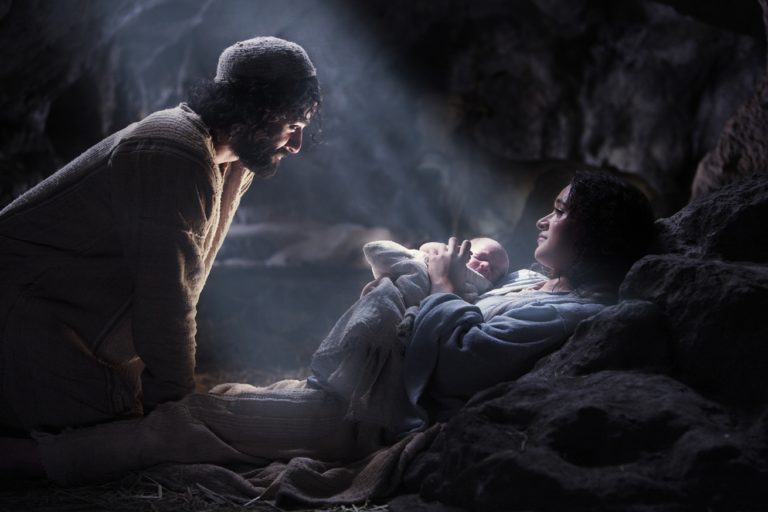
The passage tells the story of the birth of Jesus, who is the son of God. The story begins with Joseph, who is engaged to Mary, and is considering what to do after learning that Mary is pregnant. However, an angel appears to Joseph in a dream and tells him that Mary's pregnancy is from the Holy Spirit, and that the baby will be named Jesus and will save his people from their sins.
Joseph follows the angel's instructions and takes Mary as his wife. Later, the couple is forced to travel to Bethlehem for a census ordered by Caesar Augustus, and they struggle to find a place to stay due to the overcrowding of the city. Eventually, they find shelter in a stable where Mary gives birth to Jesus and lays him in a manger.
The story emphasizes the role of faith and prophecy in the birth of Jesus. It also highlights the challenges faced by Joseph and Mary, who had to overcome societal and environmental obstacles to fulfill their destiny. The birth of Jesus is considered to be a pivotal moment in Christianity and is celebrated by Christians around the world on Christmas Day.
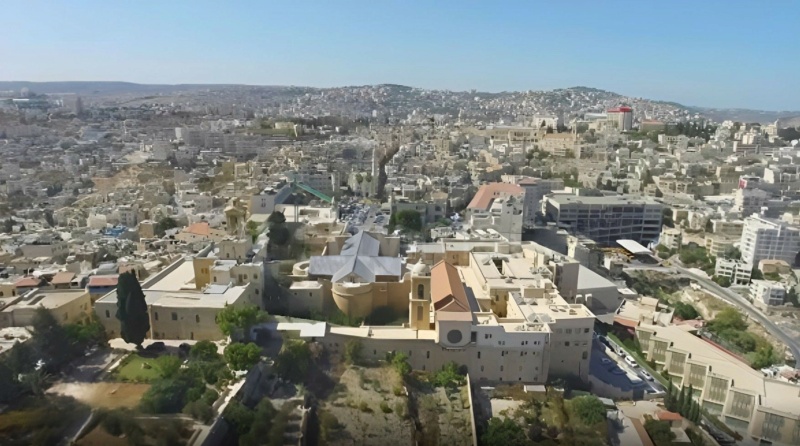
The modern Church of the Nativity in Bethlehem is almost universally accepted as being built over this grotto. The current church, while having been greatly modified and expanded, is largely the church built by Justinian in the sixth-century, having avoided destruction during the Persian invasion, unlike the majority of churches of that period, because of images in the church of the three wise men, which hailed from Persia. Excavations carried out inside the church confirm historical records of an octagonal Constantine-era basilica underneath the current church. Mosaic floors have been found, containing the well-known Greek acronym/acrostic ICHTHUS for the Christian confession: Iēsous Christos, Theou Uios, Sōtēr (“Jesus Christ, Son of God, Savior”), as well as columns inscribed with crosses by later Crusader-era pilgrims. 6
Joseph Accepts Jesus as His Son
18 This is how the birth of Jesus the Messiah came about[a]: His mother Mary was pledged to be married to Joseph, but before they came together, she was found to be pregnant through the Holy Spirit. 19 Because Joseph her husband was faithful to the law, and yet[b] did not want to expose her to public disgrace, he had in mind to divorce her quietly.
20 But after he had considered this, an angel of the Lord appeared to him in a dream and said, “Joseph son of David, do not be afraid to take Mary home as your wife, because what is conceived in her is from the Holy Spirit. 21 She will give birth to a son, and you are to give him the name Jesus,[c] because he will save his people from their sins.”
22 All this took place to fulfill what the Lord had said through the prophet: 23 “The virgin will conceive and give birth to a son, and they will call him Immanuel”[d] (which means “God with us”).
24 When Joseph woke up, he did what the angel of the Lord had commanded him and took Mary home as his wife. 25 But he did not consummate their marriage until she gave birth to a son. And he gave him the name Jesus.
Visit of the Magi (Matthew 2:1-12)
Magi from the east,
saw a star arise,
And journeyed to find,
the one they sought with their eyes.
"Where is the king,
born to the Jews?" they asked,
Their quest causing Herod,
to be shaken and aghast.
He gathered the priests,
and the scribes of the land,
Seeking to know,
where the Messiah would stand.
"In Bethlehem," they replied,
And quoted the prophet's word,
"From you shall come a ruler,
To shepherd God's people heard."
Herod called the Magi,
in secret and in stealth,
To find out the time,
of the star's appearing wealth.
He sent them to Bethlehem,
To seek out the child,
And promised to worship,
the one who was mild.
The star led them on,
till it stopped on a place,
Where they found the Christ,
with Mary's tender grace.
They bowed down and worshipped,
And offered gifts in love,
Gold, frankincense, and myrrh,
fit for a king above.
In a dream they were warned,
of Herod's evil scheme,
So they returned by a different road,
To their land, and their dream.

The story tells of the birth of Jesus Christ in Bethlehem, a city in Judea, during the reign of King Herod. Mary and Joseph, who were engaged to be married, were on their way to Bethlehem to be counted in a census when Mary went into labor. They had to find shelter in a stable, where Mary gave birth to Jesus and laid him in a manger filled with straw.
Meanwhile, in the East, wise men, also known as Magi, saw a star in the sky, which they believed was a sign of the birth of a new king of the Jews. They traveled a great distance to Jerusalem to find the child and pay their respects. When King Herod heard about the newborn child, he was troubled and summoned the wise men to ask them about the child's whereabouts. The wise men told him that they had seen the star in the east and had come to worship the new king.
King Herod was afraid of a new king threatening his power, so he asked the wise men to find the child and report back to him so that he could worship the child too. The wise men left the palace and followed the star, which led them to Bethlehem. They found the child with Mary and Joseph in the stable and presented him with gifts of gold, frankincense, and myrrh.
After paying their respects, the wise men were warned in a dream not to return to King Herod, so they left for their own country by another route. When King Herod realized that the wise men had deceived him, he became furious and ordered the killing of all male children under the age of two in Bethlehem, hoping to eliminate any potential rivals to his throne.
However, an angel appeared to Joseph in a dream and warned him to flee to Egypt with Mary and the baby Jesus to escape King Herod's wrath. They stayed there until Herod died, and then they returned to Israel and settled in Nazareth.
The story of the birth of Jesus Christ in Bethlehem is a significant event in Christianity, and it is celebrated every year on Christmas Day. It is believed that Jesus was born to Mary, a virgin, and Joseph, a carpenter, and that he was sent to Earth by God to save humanity from their sins.
The spiritual lesson that can be learned from this passage is the faithfulness and sovereignty of God in fulfilling His promises. Despite the scandalous circumstances surrounding the conception of Jesus, God used this situation to fulfill His promise of sending a Messiah to save His people. Joseph's obedience and trust in God's plan also serve as an example for believers to follow.
The practical lesson that can be learned is the importance of listening to God's guidance and obeying His commands, even when it may not make sense to us at first. Joseph initially planned to divorce Mary quietly, but he listened to the angel's message and chose to obey God's plan instead.
The main point of the passage is to show that Jesus was not an ordinary human being, but rather the Son of God who was conceived by the Holy Spirit and born of the virgin Mary. This fulfilled the prophecy from Isaiah 7:14 that a virgin would conceive and bear a son.
This passage connects to the rest of the Gospel by establishing Jesus' divine origin and purpose as the Savior of the world. It also highlights the role of Joseph as the earthly father of Jesus and demonstrates God's power to work through human beings to accomplish His plans.
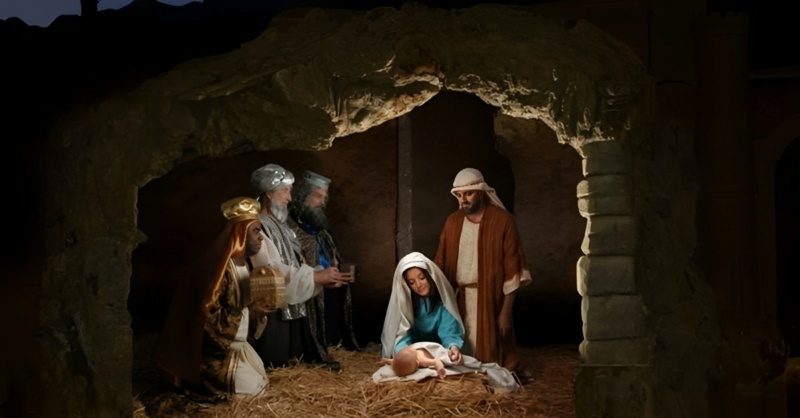
The Magi Visit the Messiah
2 After Jesus was born in Bethlehem in Judea, during the time of King Herod, Magi[a] from the east came to Jerusalem 2 and asked, “Where is the one who has been born king of the Jews? We saw his star when it rose and have come to worship him.”
3 When King Herod heard this he was disturbed, and all Jerusalem with him. 4 When he had called together all the people’s chief priests and teachers of the law, he asked them where the Messiah was to be born. 5 “In Bethlehem in Judea,” they replied, “for this is what the prophet has written:
6 “‘But you, Bethlehem, in the land of Judah,
are by no means least among the rulers of Judah;
for out of you will come a ruler
who will shepherd my people Israel.’[b]”
7 Then Herod called the Magi secretly and found out from them the exact time the star had appeared. 8 He sent them to Bethlehem and said, “Go and search carefully for the child. As soon as you find him, report to me, so that I too may go and worship him.”
9 After they had heard the king, they went on their way, and the star they had seen when it rose went ahead of them until it stopped over the place where the child was. 10 When they saw the star, they were overjoyed. 11 On coming to the house, they saw the child with his mother Mary, and they bowed down and worshiped him. Then they opened their treasures and presented him with gifts of gold, frankincense and myrrh. 12 And having been warned in a dream not to go back to Herod, they returned to their country by another route.
Escape to Egypt (Matthew 2:13-18)
In the dead of the night,
an angel came to Joseph's dream,
"Take the child and his mother,
flee to Egypt, for all is not as it seems."
Herod was furious,
searching for the child to kill,
Joseph got up and left,
with the child and Mary so still.
They journeyed to Egypt,
a place of safety and peace,
And there they stayed until,
Herod's reign did finally cease.
The prophet's words came true,
out of Egypt, God's son was called,
For he had to escape,
and his life be forestalled.
But Herod would not relent,
upon realizing he was outwitted,
He ordered all boys in Bethlehem,
to be killed, so evil and twisted.
A voice of weeping and mourning,
was heard in Ramah's town,
For Rachel wept for her children,
who were taken and never found.

The Flight to Egypt is a biblical story that narrates the journey of the Holy Family as they flee from King Herod's wrath. This story is a significant episode in the life of Jesus Christ, as it highlights the challenges and dangers that the Holy Family had to endure to ensure the safety of the newborn king.
The Flight to Egypt begins with Joseph having a dream in which an angel instructs him to take the child and his mother and escape to Egypt to avoid Herod's wrath. Joseph woke up immediately and, without hesitation, shared the dream with Mary, who packed their belongings and prepared the donkeys for the journey ahead.
The Holy Family traveled through the night, avoiding the main routes to stay clear of Herod's men. They stopped only to rest at night and continued their journey through the wild countryside, keeping to ancient animal tracks that wound through the landscape. The journey was long and arduous, and they finally arrived in Egypt, where they found sanctuary, far from King Herod and his henchmen in Jerusalem.
While the Holy Family was in Egypt, Herod issued a decree that all boys under the age of two in the Bethlehem area should be killed immediately. It was a terrible tragedy, as the soldiers butchered every little boy in Bethlehem, and their mothers wept for their children's lives.
The Flight to Egypt story highlights the Holy Family's faith and resilience during their journey, as they endured hardship and danger to keep the newborn king safe. It also portrays the cruelty of King Herod and the sacrifices that Mary and Joseph made to protect their child.
Eventually, an angel appeared to Joseph in a dream, instructing him to return to Israel, as those who were trying to take the child's life were dead. The Holy Family set off to make the long journey home, but upon their arrival, they discovered that Herod's kingdom had been divided into three parts following his death, and his cruel son, Archelaus, was now reigning over Judea. Fearful at the news, they decided to travel further north and settle in Nazareth in Galilee, where they had lived before.
The Flight to Egypt story is a powerful testament to the Holy Family's faith and courage, as they navigated the dangers and challenges of their journey. It also underscores the importance of faith and trust in God during difficult times and how it can lead us to safety and salvation.
(Matthew 2:13-18) is a passage that describes the events that occurred after the Magi had left Bethlehem. An angel of the Lord appeared to Joseph in a dream and told him to take Mary and Jesus to Egypt, as King Herod was seeking to kill the child. Joseph obeyed the angel and took his family to Egypt, where they stayed until Herod died. This fulfilled a prophecy from Hosea: "Out of Egypt I called my son."
Meanwhile, when Herod realized that he had been outwitted by the Magi, he became furious and ordered the killing of all boys in Bethlehem who were two years old or younger. This was an attempt to eliminate any potential threat to his rule. This horrific event is known as the Massacre of the Innocents.
The spiritual lesson from this passage is that God is in control, even in the midst of difficult and dangerous circumstances. He can use dreams and signs to guide His people and protect them from harm. Additionally, the passage highlights the fulfillment of prophecy, as God's plan for the redemption of the world unfolds.
The practical lesson is that we should be obedient to God's guidance, even when it may not make sense to us or may lead us into difficult situations. Joseph's obedience to the angel's command to go to Egypt ultimately saved Jesus' life.
This passage connects to the rest of the Gospel as it highlights the theme of Jesus as the fulfillment of prophecy and the promised Messiah. It also underscores the reality of opposition to Jesus' mission, as Herod sought to kill Him from a very young age. The passage also foreshadows Jesus' ultimate sacrifice on the cross, as innocent children were killed in an attempt to prevent Jesus from fulfilling His mission.
The Escape to Egypt
13 When they had gone, an angel of the Lord appeared to Joseph in a dream. “Get up,” he said, “take the child and his mother and escape to Egypt. Stay there until I tell you, for Herod is going to search for the child to kill him.”
14 So he got up, took the child and his mother during the night and left for Egypt, 15 where he stayed until the death of Herod. And so was fulfilled what the Lord had said through the prophet: “Out of Egypt I called my son.”[a]
16 When Herod realized that he had been outwitted by the Magi, he was furious, and he gave orders to kill all the boys in Bethlehem and its vicinity who were two years old and under, in accordance with the time he had learned from the Magi. 17 Then what was said through the prophet Jeremiah was fulfilled:
18 “A voice is heard in Ramah,
weeping and great mourning,
Rachel weeping for her children
and refusing to be comforted,
because they are no more.”[b]
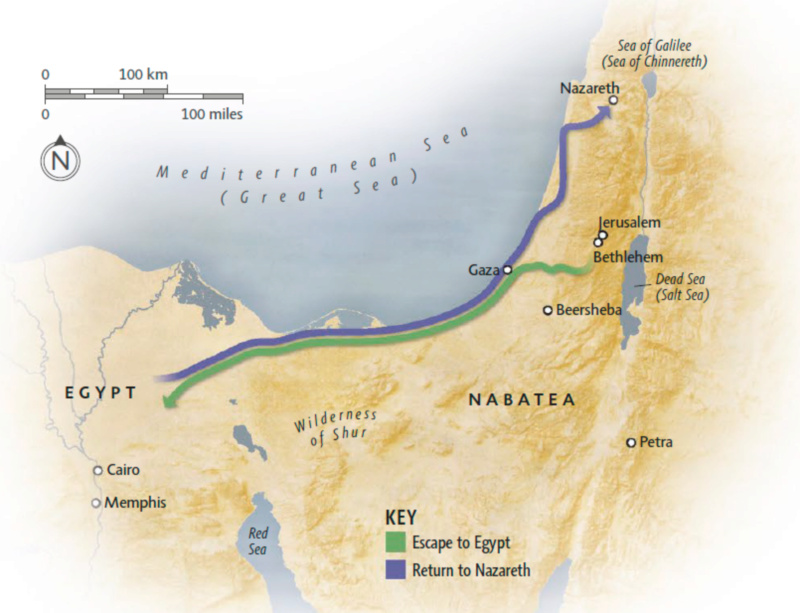
Return to Nazareth (Matthew 2:19-23)
Joseph, Mary, and baby Jesus
Fleeing from danger, they had to leave us
To Egypt they went, a new home they found
But the angel returned, with a message profound
"Herod is dead, it's time to go back
To the land of Israel, on a safe track"
So they left Egypt, headed for home
But soon found out they couldn't roam
Archelaus was ruling, a dangerous man
Joseph was scared, he had a plan
He went to Galilee, a safer place
A town called Nazareth, a new embrace
And so it was fulfilled, what was prophesized
Jesus would be called a Nazarene, it was realized
The journey was long, but they made it through
Joseph, Mary, and Jesus, starting anew.
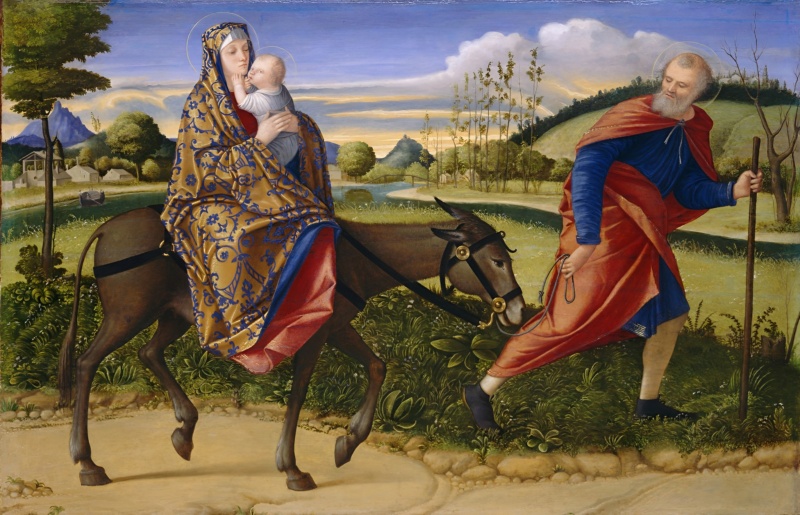
Vittore Carpaccio Fuga in Egitto (1510)
In this passage, we see Joseph being instructed by an angel of the Lord to take Jesus and Mary back to the land of Israel, as those who were seeking to harm Jesus are now dead. However, Joseph is afraid to go to Judea when he learns that Herod's son Archelaus is reigning there, so he instead goes to Galilee and settles in the town of Nazareth. This move fulfills a prophecy that the Messiah would be called a Nazarene.
One spiritual lesson that can be gleaned from this passage is the importance of being obedient to God's guidance and direction, even when it may not make sense to us or seem difficult. Joseph had to uproot his family and move multiple times based on dreams and divine guidance, but he trusted in God's plan and protection for them.
This passage also highlights the fulfillment of Old Testament prophecies regarding the Messiah. Jesus being called a Nazarene is a reference to several prophecies that spoke of the Messiah being despised and rejected, as the town of Nazareth was not a well-respected place at the time. This connects to the overall theme of the Gospel of Matthew, which emphasizes how Jesus is the fulfillment of Old Testament prophecies and the promised Messiah.
The Return to Nazareth
19 After Herod died, an angel of the Lord appeared in a dream to Joseph in Egypt 20 and said, “Get up, take the child and his mother and go to the land of Israel, for those who were trying to take the child’s life are dead.”
21 So he got up, took the child and his mother and went to the land of Israel. 22 But when he heard that Archelaus was reigning in Judea in place of his father Herod, he was afraid to go there. Having been warned in a dream, he withdrew to the district of Galilee, 23 and he went and lived in a town called Nazareth. So was fulfilled what was said through the prophets, that he would be called a Nazarene.
John the Baptist prepares the way (Matthew 3:1-12)
In the wilderness of Judea, John appeared,
A voice crying out, a message to be heard.
Proclaiming repentance, a call to prepare,
For the kingdom of heaven, drawing near.
John the Baptist, with his rugged attire,
Clothed in camel's hair, a prophet with fire.
With a leather belt around his waist,
His food was locusts and wild honey, to taste.
People from Jerusalem and all around,
Came to John, in the wilderness they found,
Confessing their sins, they were baptized,
In the Jordan River, they were purified.
But when Pharisees and Sadducees drew near,
John's words were sharp, bold and clear,
"You brood of vipers!" he boldly cried,
"Produce fruits of repentance, no room for pride."
"Do not think Abraham is all you need,
God can raise children from stones indeed.
The axe is at the root of every tree,
Those without good fruit, will meet the decree."
John baptized with water, a sign of change,
But after him, one would come, a greater exchange.
One more powerful, whose sandals he's not worthy to bear,
Baptizing with the Spirit and fire, a heavenly affair.
His winnowing fork in hand, he'll clear the floor,
Gathering wheat into the barn, chaff to be no more.
Unquenchable fire, to burn away the waste,
The Messiah is coming, with power and grace.
So listen to John's message, with hearts awake,
Repent, prepare the way, for Jesus' sake.
The kingdom of heaven, so close and near,
John the Baptist's call, let us all revere.

In Matthew 3:1-12, the main point of the passage is to introduce John the Baptist as the forerunner of Jesus and to highlight the importance of repentance and preparation for the coming of the Messiah.
The passage emphasizes the message of John the Baptist, which is a call to repentance and preparation for the coming of the Lord. John is portrayed as a prophet, preparing the way for the coming of Jesus Christ. He urges the people to repent and turn from their sins, warning them of the consequences of unrepentant hearts.
The spiritual lesson that can be learned from this passage is the importance of repentance in our lives as Christians. We need to acknowledge our sins and turn away from them, and prepare our hearts for the coming of the Lord. John's message is a reminder that we need to continually examine our lives and make changes where necessary to be ready for the coming of the Lord.
The practical lesson that can be learned is that repentance is an ongoing process, not a one-time event. We need to constantly be aware of our actions and attitudes, and make adjustments to align ourselves with God's will. We can also learn from John's example of boldly proclaiming the truth, even in the face of opposition and persecution.
This passage connects to the rest of the Gospel by setting the stage for the ministry of Jesus Christ. John the Baptist prepares the way for Jesus, and his message of repentance sets the tone for Jesus' own message of the Kingdom of God. Additionally, the baptism of Jesus by John in the following verses marks the beginning of Jesus' public ministry.
John the Baptist Prepares the Way
3 In those days John the Baptist came, preaching in the wilderness of Judea 2 and saying, “Repent, for the kingdom of heaven has come near.” 3 This is he who was spoken of through the prophet Isaiah:
“A voice of one calling in the wilderness,
‘Prepare the way for the Lord,
make straight paths for him.’”[a]
4 John’s clothes were made of camel’s hair, and he had a leather belt around his waist. His food was locusts and wild honey. 5 People went out to him from Jerusalem and all Judea and the whole region of the Jordan. 6 Confessing their sins, they were baptized by him in the Jordan River.
7 But when he saw many of the Pharisees and Sadducees coming to where he was baptizing, he said to them: “You brood of vipers! Who warned you to flee from the coming wrath? 8 Produce fruit in keeping with repentance. 9 And do not think you can say to yourselves, ‘We have Abraham as our father.’ I tell you that out of these stones God can raise up children for Abraham. 10 The ax is already at the root of the trees, and every tree that does not produce good fruit will be cut down and thrown into the fire.
11 “I baptize you with[b] water for repentance. But after me comes one who is more powerful than I, whose sandals I am not worthy to carry. He will baptize you with[c] the Holy Spirit and fire. 12 His winnowing fork is in his hand, and he will clear his threshing floor, gathering his wheat into the barn and burning up the chaff with unquenchable fire.”
Baptism of Jesus (Matthew 3:13-17)
Jesus, the son of God,
came to the Jordan's shore,
To be baptized by John,
as he had never done before.
But John, surprised and hesitant,
tried to deter Jesus, he did say,
"I should be baptized by you,
Why do you come to me today?"
Jesus replied with calm assurance,
"Let it be so now, to fulfill righteousness,
The Spirit will soon descend upon me,
As a sign of God's divine witness."
So John consented, and baptized Jesus,
In the river's flowing tide,
And as he rose from the water,
The heavens opened wide.
The Spirit of God descended,
Like a gentle dove in flight,
And a voice from heaven declared,
"This is my son, whom I delight."
Jesus, our savior and Lord,
Confirmed by heaven's voice and sign,
Set out to fulfill his mission,
To bring love and light divine.
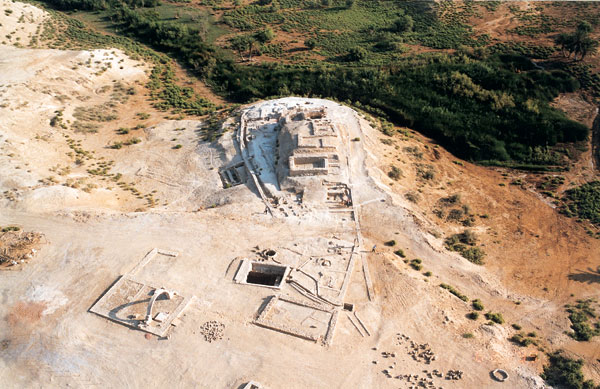
A photo taken by the Jordan Tourism Board captures the remains of a Byzantine-era monastery complex situated on a low hill in Al-Maghtas, Jordan. This location has been regarded by Christian pilgrims as "Bethany beyond the Jordan" since the Byzantine period, where John the Baptist baptized Jesus.
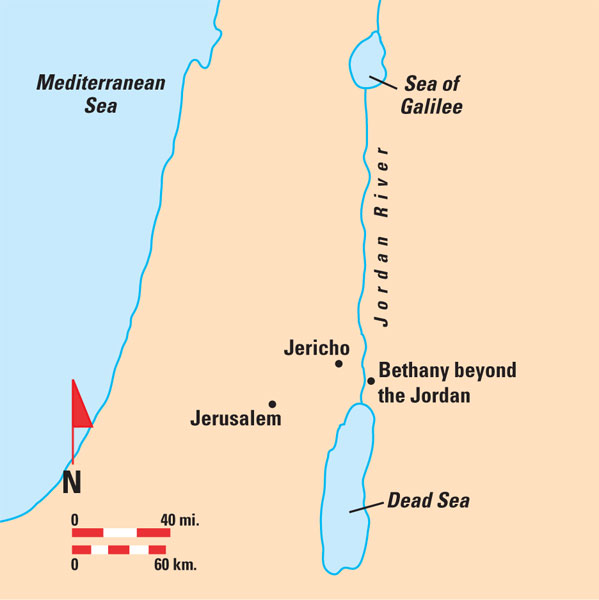
The map indicates the position of "Bethany beyond the Jordan" on the eastern bank of the Jordan River. However, there exist two traditions that identify the location of the site differently, with one placing it on the western bank of the river. Image: Biblical Archaeology Society.
The story of Jesus' baptism in the River Jordan is a significant event in the New Testament. When Jesus arrived at the river to be baptized by John, it was initially met with surprise from John himself. John believed that Jesus should be the one baptizing him instead. However, Jesus explained that it was necessary to fulfill all righteousness, and John agreed to baptize him.
John preached in the wilderness and baptized people in the River Jordan. This location was symbolic to Israel as it represented the opportunity for them to renew their relationship with God, symbolically returning to the desert and then entering the Promised Land. Jesus, who came to save people from their sins, joined them in the wilderness and submitted to baptism. By doing so, he became one of them, joining the crowds in the desert and in the river.
As Jesus emerged from the water, he saw the Spirit of God descending like a dove and alighting on him. This was a powerful moment that connected the scene to a biblical moment older than Israel and global in scope. The world re-emerged from the waters of the flood, and Noah's dove settled on it, representing God's new beginning for humanity. Now, Christ re-emerged from the waters, and the dove settled on him – the one in whom all humankind could begin again.
The Spirit empowered Jesus for the mission ahead, and with God's Spirit came a voice from heaven affirming that Jesus was the Son of God, loved by the Father. This declaration exalted Jesus as the one trusted by God, and worthy of his readers' trust as well.
The story of Jesus' baptism teaches us several spiritual and theological lessons. First, it shows us that baptism is a powerful symbol of our renewal and commitment to God. Secondly, it teaches us that Jesus became one of us to save us from our sins, and he did so by submitting to baptism, even though he did not need to. Finally, it reminds us that the Holy Spirit empowers us for our mission in life and that we should listen to the voice of God, just as Jesus did. Overall, this story encourages us to renew our relationship with God, commit to our mission, and trust in the power of the Holy Spirit.
The Jewish people had been waiting for a new Messiah and prophet for centuries since the last prophet had spoken to them. John, who had been miraculously born to Elizabeth and Zechariah, lived a solitary life in the desert, preaching and baptizing people. He wore rough clothes made of camel hair and ate wild food, such as locusts and honey. John urged people to turn away from evil, to repent, and to return to God because Judgement Day was near. He baptized those who repented in the cool waters of the Jordan River.
Word of John's preaching and baptizing spread, and people from all over Galilee and beyond flocked to the desert to see him. When the wealthy and powerful Sadducees and Pharisees came to see him, John berated them and told them to repent their sins. The people asked John what they should do, and he told them to share with those in need and to be content with what they had.
Some tax collectors and soldiers also asked John what they should do, and he told them not to collect more than required and not to extort money or falsely accuse people. Many people wondered whether John might be the Messiah himself, but John told them that he baptized with water and that one more powerful than him would come to baptize with the Holy Spirit and fire.
Jesus came from Galilee to be baptized by John in the river, even though he had never sinned and had nothing to repent. John was hesitant to baptize Jesus, but Jesus insisted, saying it was God's will. As they waded into the river, John baptized Jesus and the Spirit of God appeared as a white dove bathed in light. A voice from above proclaimed, "This is my Son, whom I love; with him I am well pleased."
In Matthew 3:13-17, the main point of the passage is the baptism of Jesus by John the Baptist. This event marks the beginning of Jesus' public ministry, and it also serves as a validation of Jesus' identity as the Son of God.
One spiritual lesson that can be learned from this passage is the importance of humility and submission to God. Even though Jesus did not need to be baptized for the forgiveness of sins, He still chose to submit to John's baptism as a way of identifying with humanity and demonstrating His obedience to God.
Another practical lesson that can be learned is the significance of baptism as a public declaration of faith and commitment to following Jesus. Just as Jesus was baptized publicly, believers today can use baptism as a way of publicly proclaiming their faith and commitment to following Jesus.
This passage connects to the rest of the Gospel by showing that Jesus is the Son of God and that He came to fulfill God's plan of redemption for humanity. It also connects to other passages in the Bible that describe baptism as an important symbol of faith and obedience to God.
The Baptism of Jesus
13 Then Jesus came from Galilee to the Jordan to be baptized by John. 14 But John tried to deter him, saying, “I need to be baptized by you, and do you come to me?”
15 Jesus replied, “Let it be so now; it is proper for us to do this to fulfill all righteousness.” Then John consented.
16 As soon as Jesus was baptized, he went up out of the water. At that moment heaven was opened, and he saw the Spirit of God descending like a dove and alighting on him. 17 And a voice from heaven said, “This is my Son, whom I love; with him I am well pleased.”
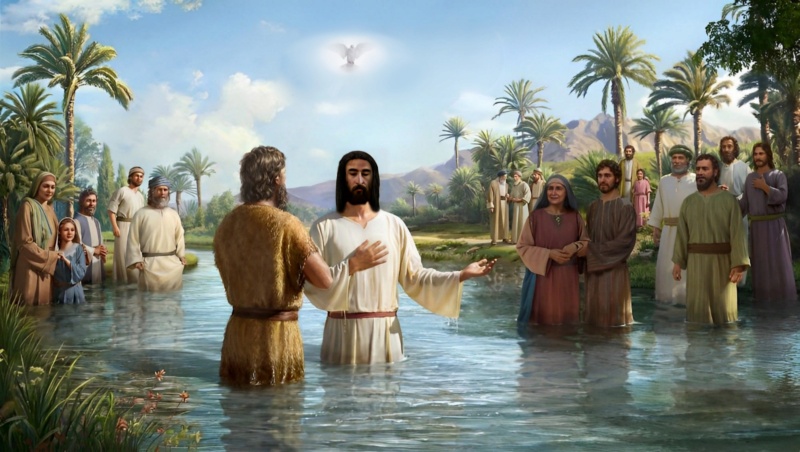
Temptation of Jesus (Matthew 4:1-11)
In the wilderness, Jesus fasted and prayed
But the devil came, tempting him with his ways
"If you're the Son of God," he said with a grin
"Command these stones to turn to bread, give in"
But Jesus replied, "Man lives not by bread alone
But by every word from God's throne"
Next, the devil took him to a high place
And said, "Jump, for angels will bear your face"
But Jesus said, "Do not put God to the test"
And the devil fled, his plan not to manifest
Once more, he tempted Jesus with power
All the kingdoms of the world, in his hour
"If you worship me," he said with a leer
"All this will be yours, no need to fear"
But Jesus knew, only God deserves our worship
He told the devil to leave, with his own quip
And so it was, the devil went away
Angels ministered to Jesus, as he lay.
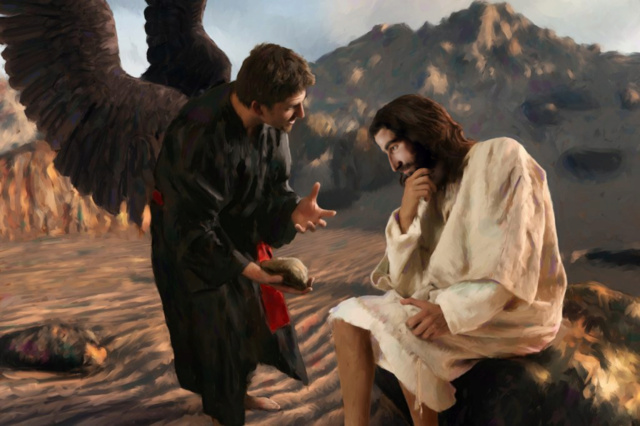
In the Judean desert, Jesus fasted and prayed for forty days and nights, enduring the harsh conditions of the barren landscape with only the company of eagles, vultures, and snakes. As his physical strength waned, the Devil appeared before him, tempting him to use his divine power to turn stones into bread, to prove his identity by jumping off the temple, and to worship the Devil in exchange for earthly kingdoms.
Yet Jesus remained steadfast in his obedience to God, citing scripture and refusing to break his fast or put God to the test. Finally, the Devil vanished, and angels appeared to strengthen Jesus after his spiritual struggle.
This powerful story of temptation and faith has been recounted throughout history and has inspired countless individuals to remain steadfast in their devotion to God. It serves as a reminder that, even in the face of adversity and temptation, one can find strength and solace in faith and devotion to a higher power.
Spiritual and practical lessons:
The importance of relying on God's word in times of temptation and testing
The danger of using our own power and resources to achieve our goals
The value of worshiping and serving God above all else
Main point:

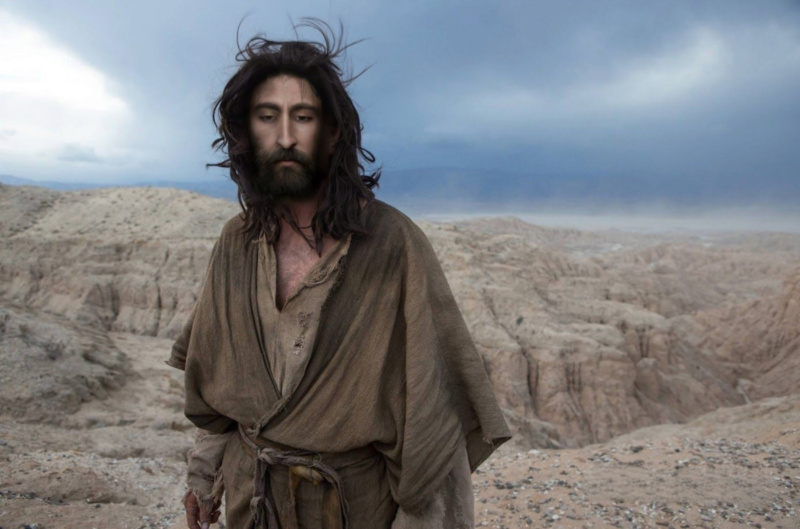
The Judean wilderness, where Jesus fasted for forty days following his baptism (Matt. 4:1)
Jesus is tempted by the devil in the wilderness, but he resists temptation by relying on God's word and power.
Connection to the rest of the Gospel/Bible:
This passage shows how Jesus, as the Son of God, was tested and tempted just like any human being, but was able to resist sin and overcome temptation. This theme of Jesus' humanity and divinity is a major theme throughout the Gospel of Matthew and the Bible as a whole. Additionally, this passage foreshadows Jesus' ultimate victory over sin and death through his death and resurrection.
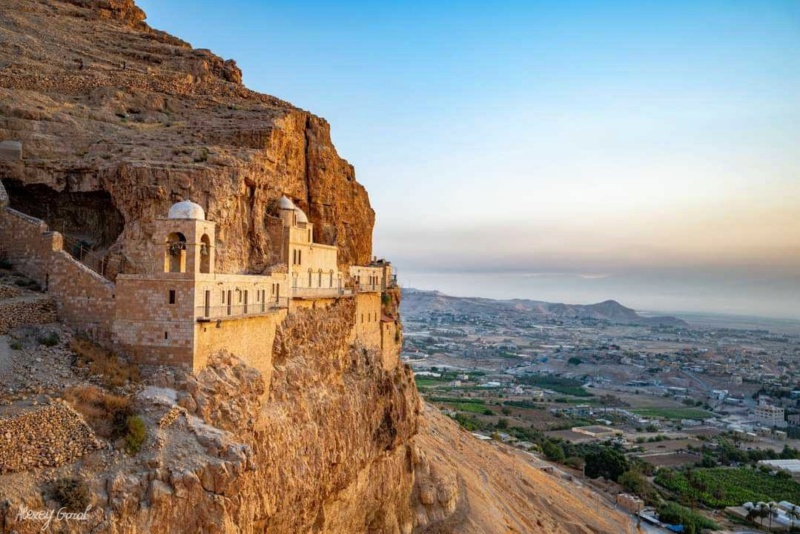
THE MOUNT OF TEMPTATION: The Orthodox monastery of Quruntal (or “Temptation”) clings to the Mount of Temptation, overlooking the Jordan valley to the northwest of the town of Jericho. The exact location of the biblical temptation is not known, but it is traditionally identified with this limestone peak – one of the holy sites identified by Helena in the 4th century – on the road from Jerusalem to Jericho.
The Temptation of Jesus
4 Then Jesus was led up by the Spirit into the wilderness to be tempted by the devil. 2 And after fasting forty days and forty nights, he was hungry. 3 And the tempter came and said to him, “If you are the Son of God, command these stones to become loaves of bread.” 4 But he answered, “It is written,
“‘Man shall not live by bread alone,
but by every word that comes from the mouth of God.’”
5 Then the devil took him to the holy city and set him on the pinnacle of the temple 6 and said to him, “If you are the Son of God, throw yourself down, for it is written,
“‘He will command his angels concerning you,’
and
“‘On their hands they will bear you up,
lest you strike your foot against a stone.’”
7 Jesus said to him, “Again it is written, ‘You shall not put the Lord your God to the test.’” 8 Again, the devil took him to a very high mountain and showed him all the kingdoms of the world and their glory. 9 And he said to him, “All these I will give you, if you will fall down and worship me.” 10 Then Jesus said to him, “Be gone, Satan! For it is written,
“‘You shall worship the Lord your God
and him only shall you serve.’”
11 Then the devil left him, and behold, angels came and were ministering to him.
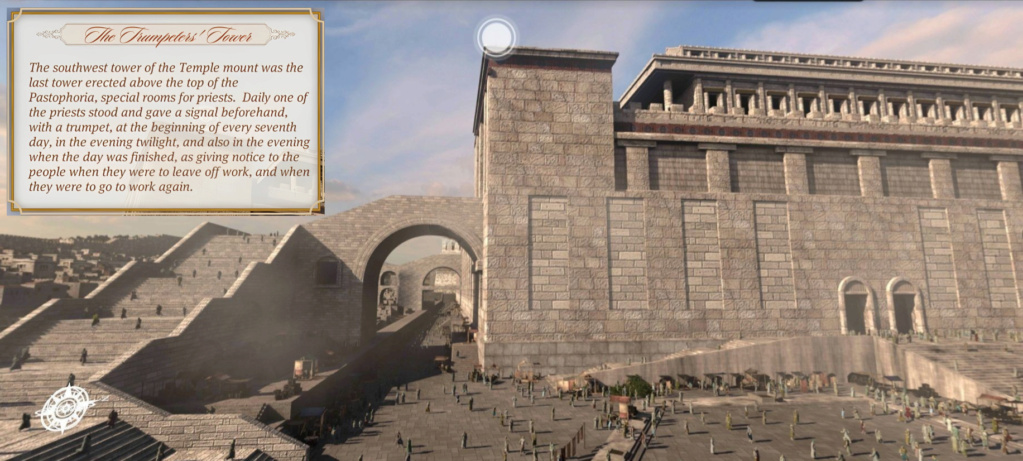
If this was the place where Jesus stood in Matthew’s account, it would have been at the southeastern corner of the Temple Mount itself, above the Kidron Valley, on top of the building known as the Royal Portico. Today the
ground level has risen due to centuries of destruction and rebuilding, but when Warren dug a shaft down from that corner of the Temple Mount, he had to go down 106 feet below the elevation of the average level of the
temple area to get to the bottom of Herod’s foundation blocks. Josephus says the Royal Portico that once stood on the Temple Mount at this spot was 50-feet high. This height, combined with the depth of the Kidron Valley, makes it understandable why Josephus says that the view from this spot would make someone “giddy” and why Satan would have chosen this spot to tempt Jesus.
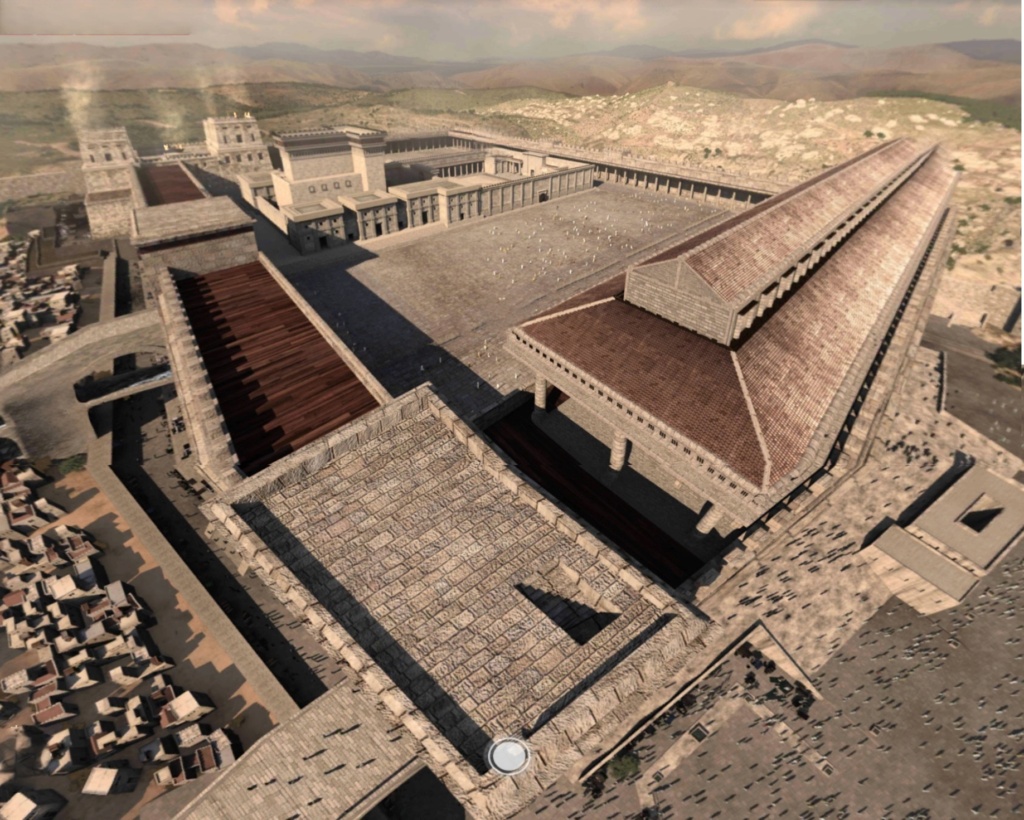
Last edited by Otangelo on Wed 19 Apr 2023 - 2:31; edited 37 times in total



